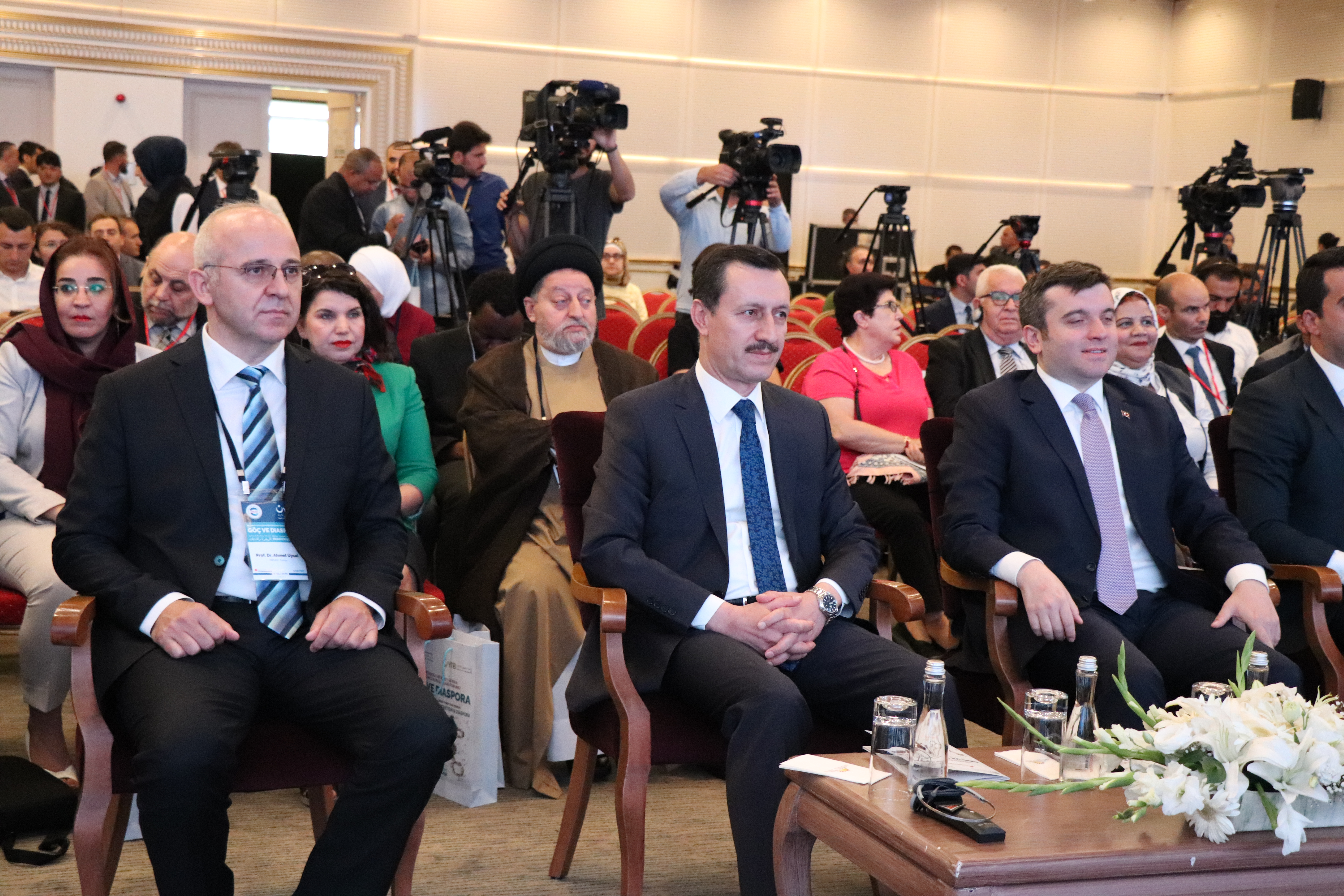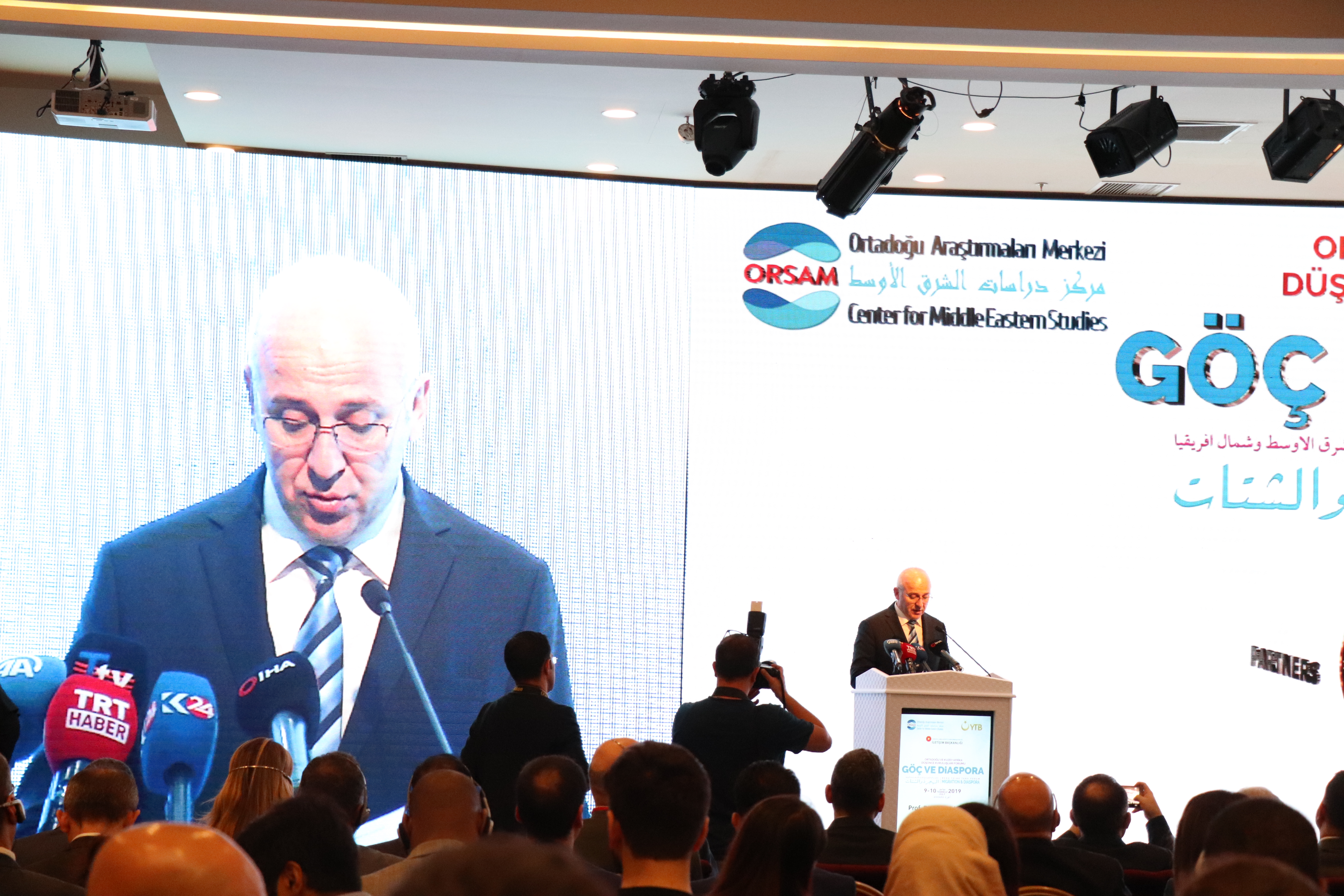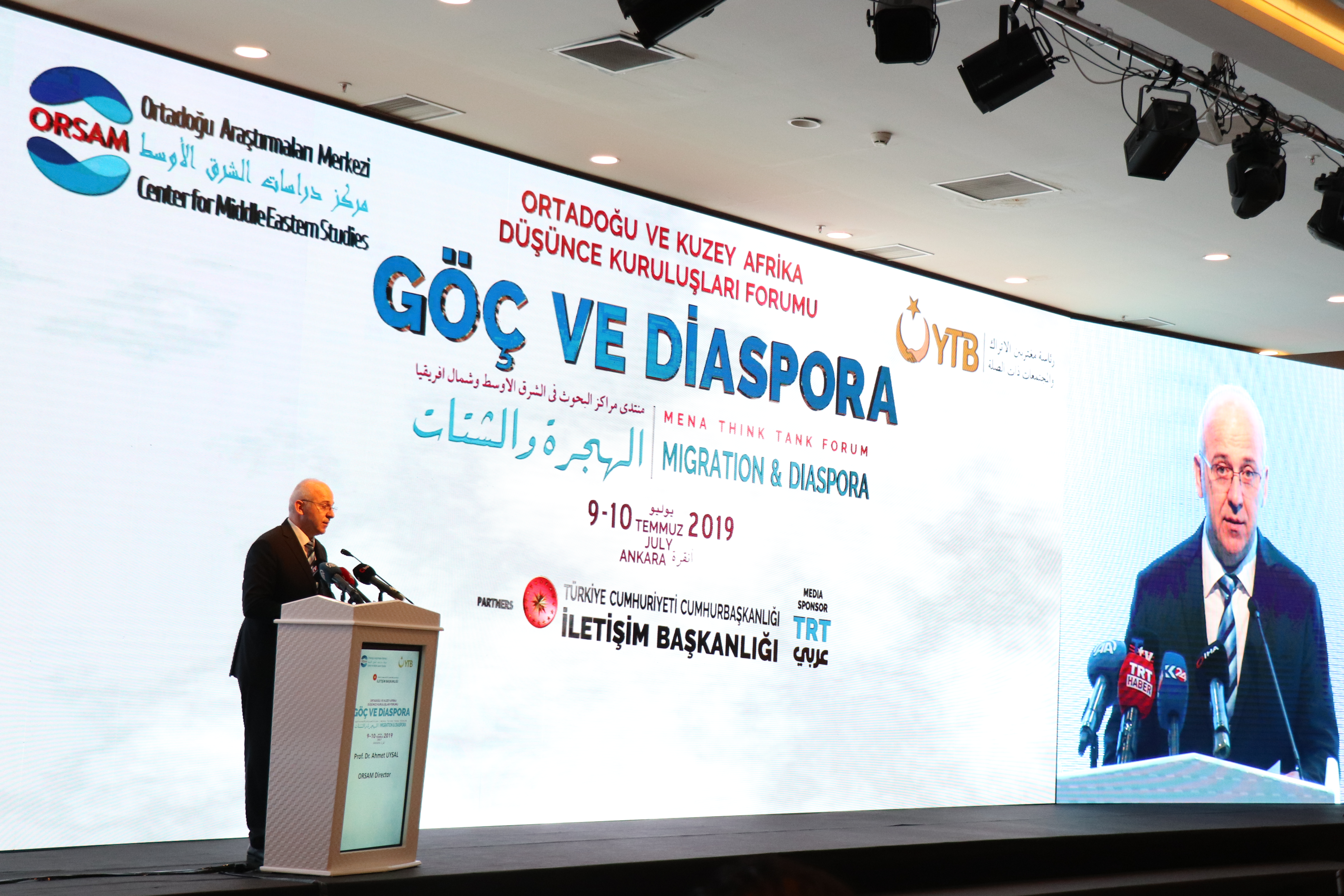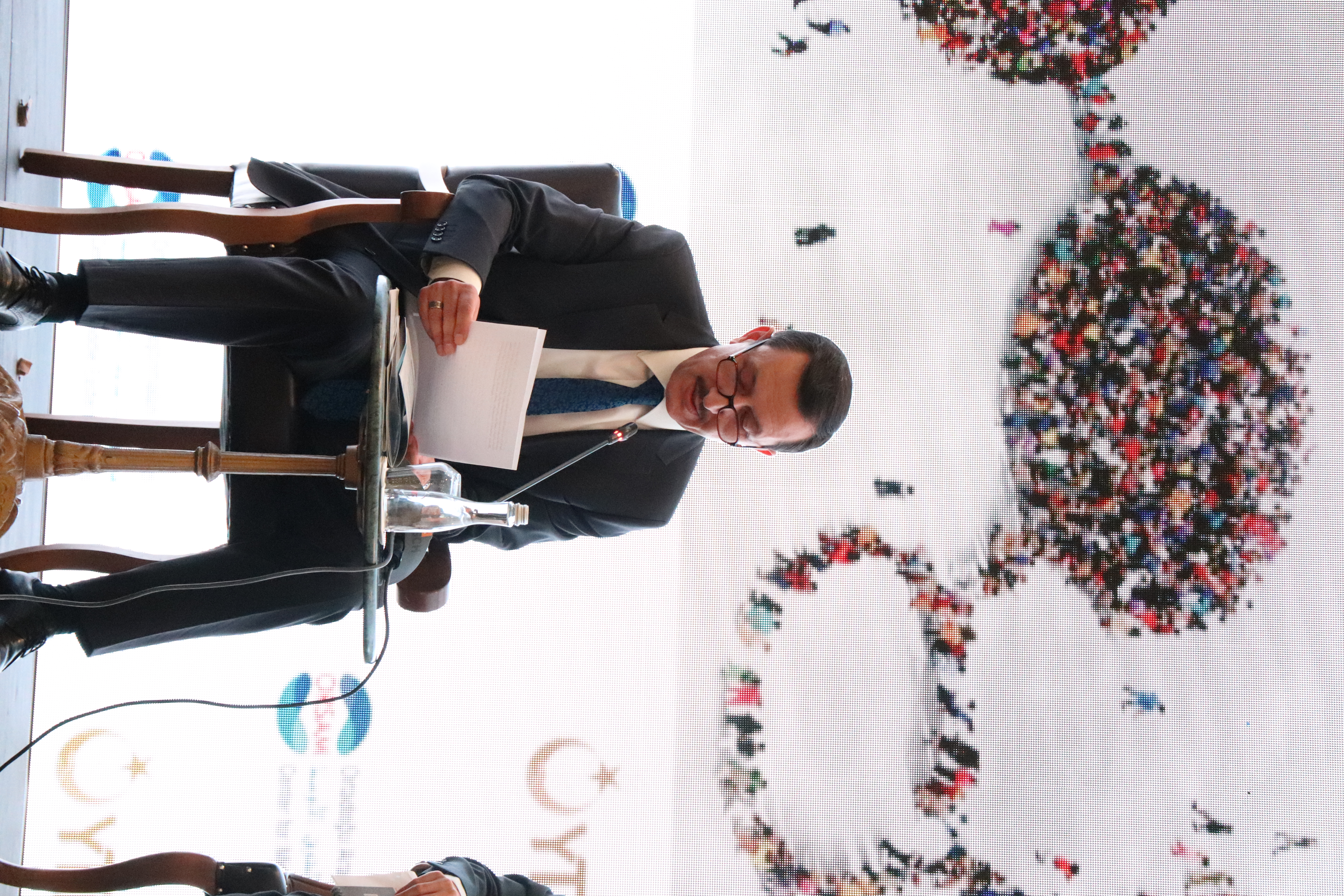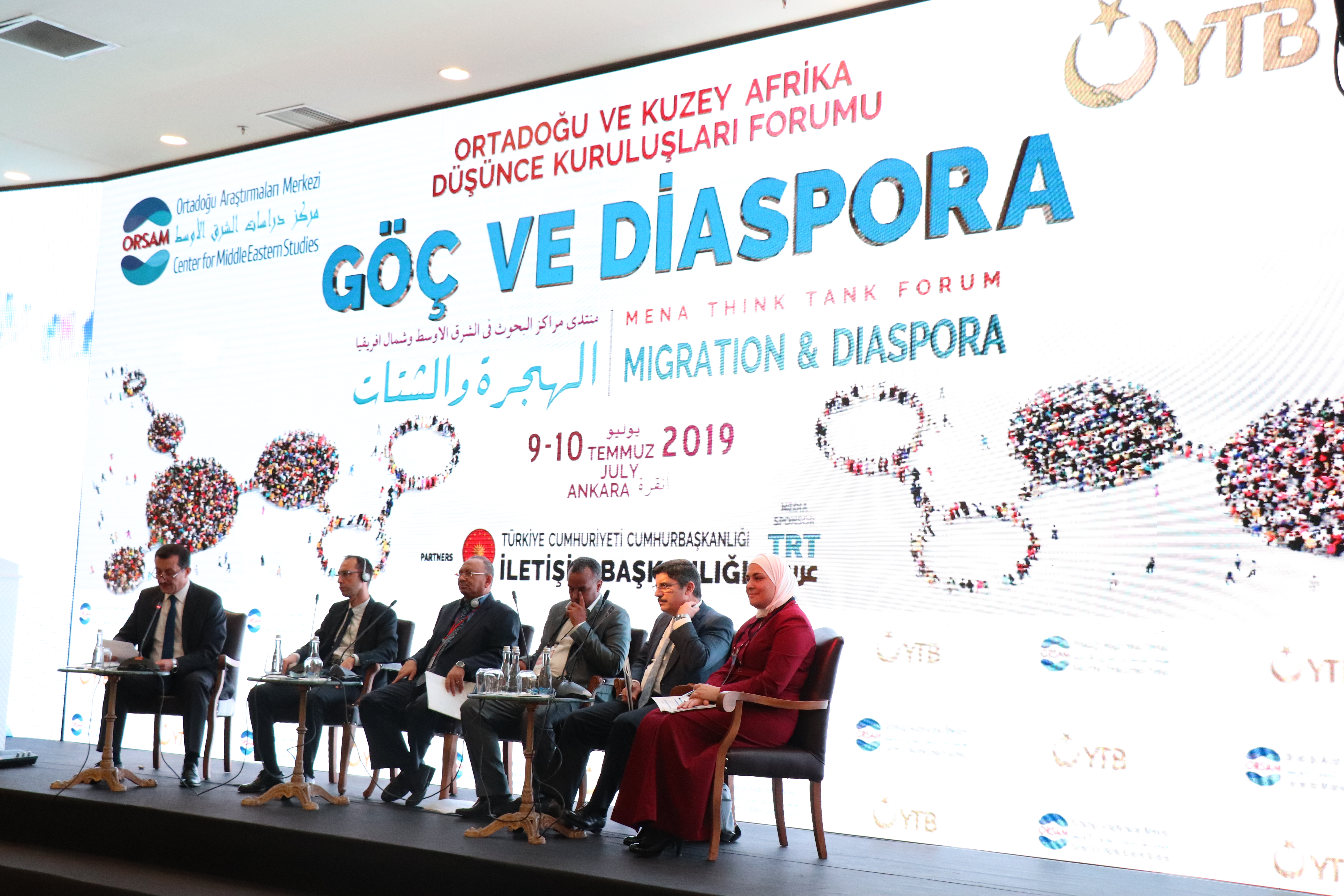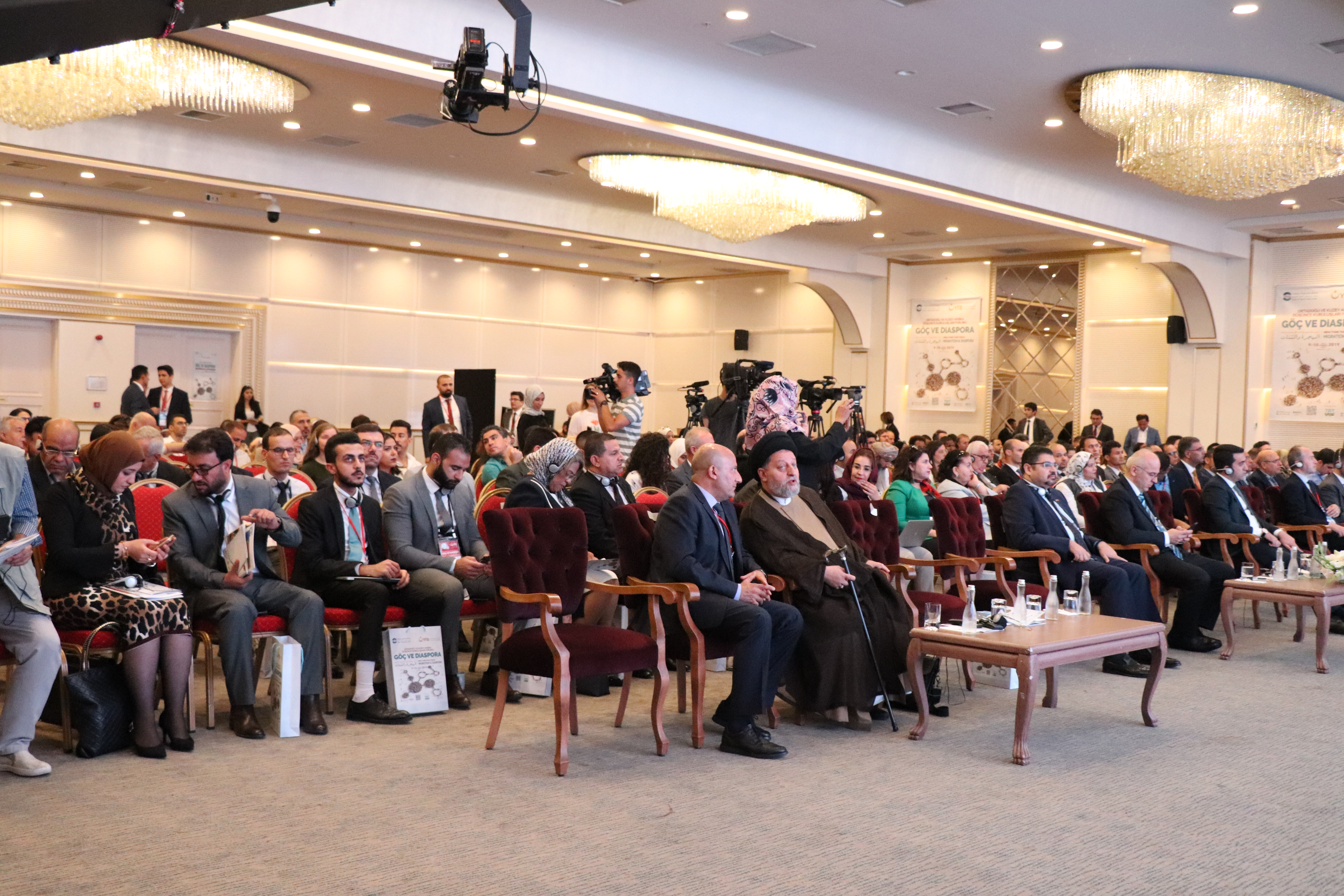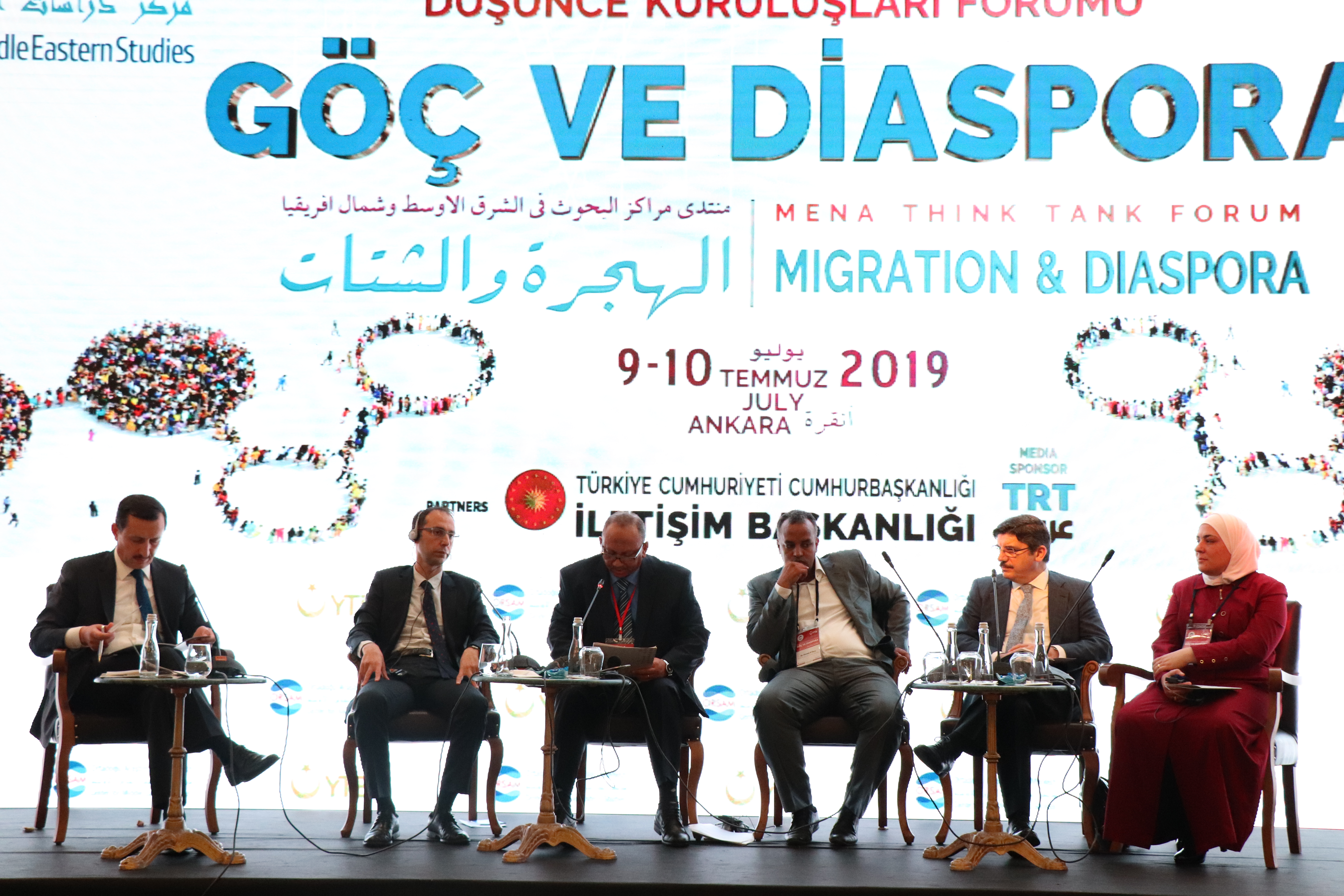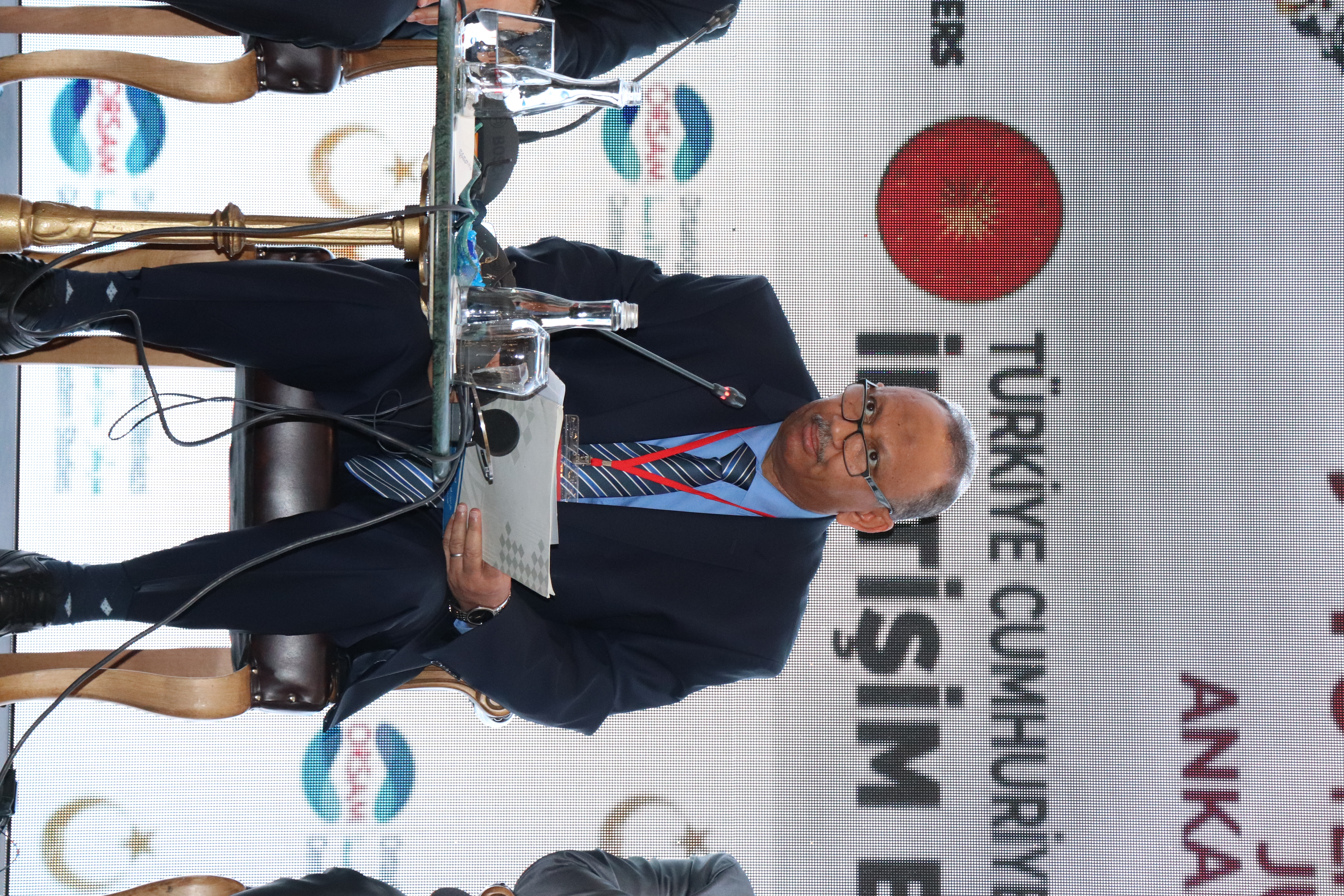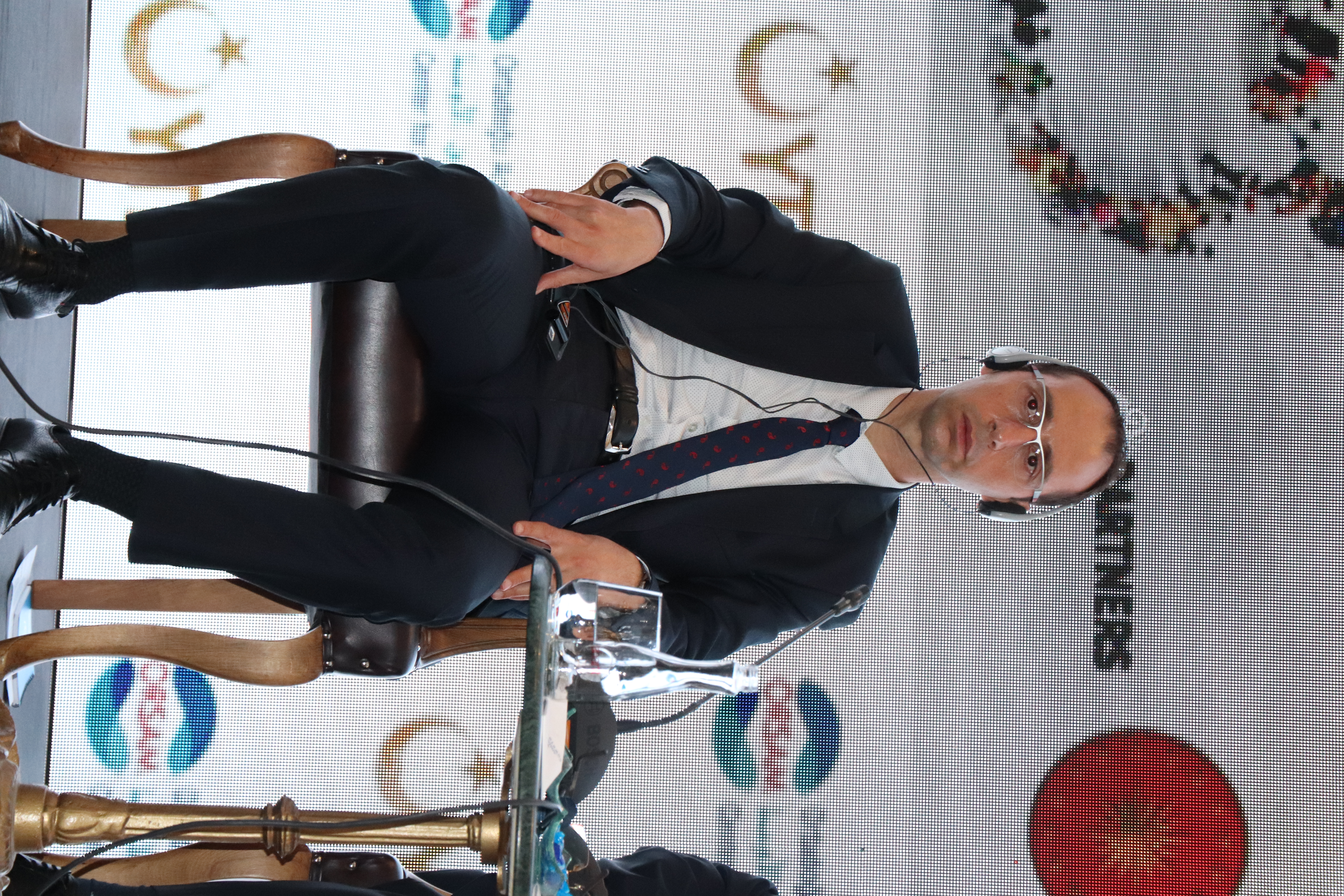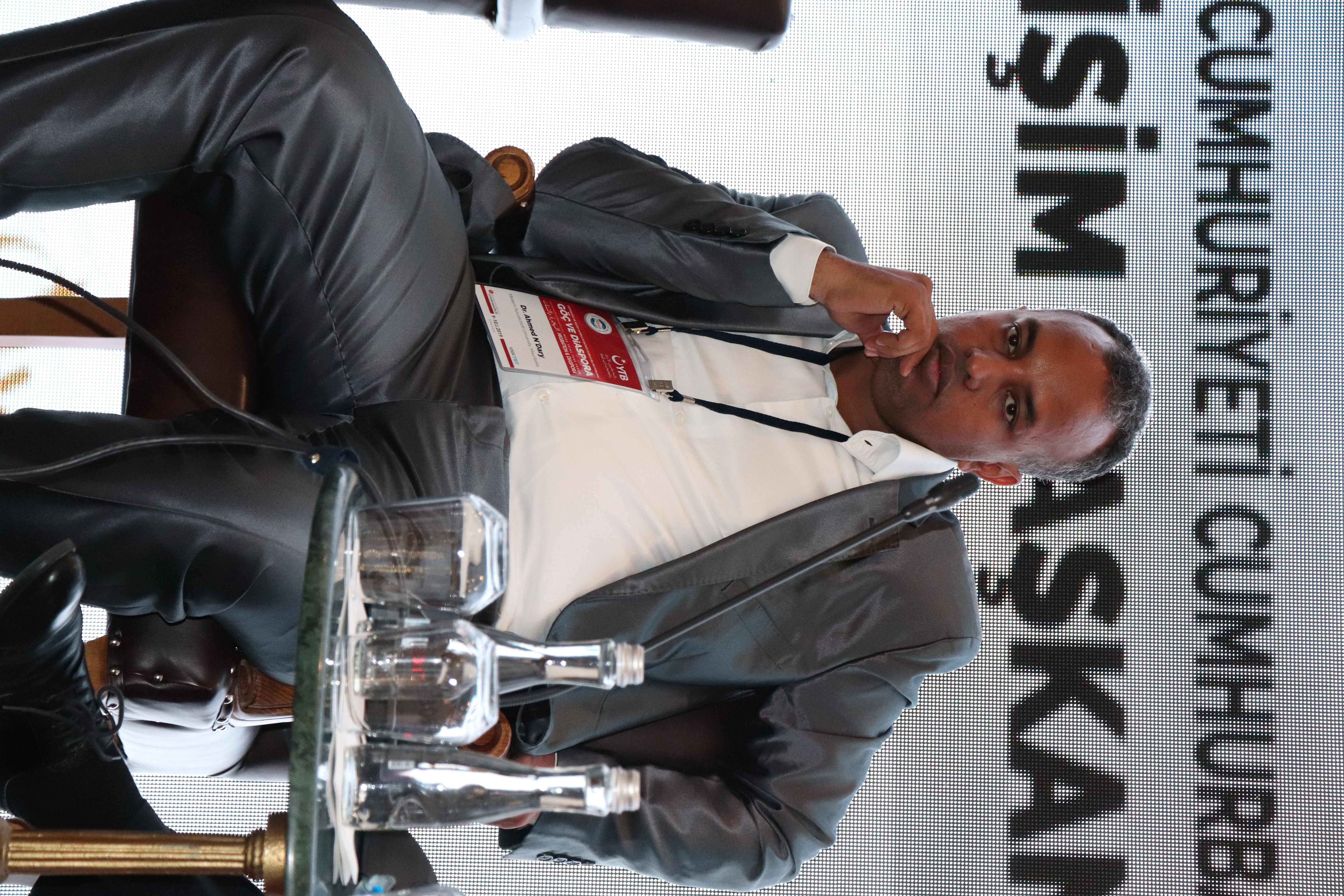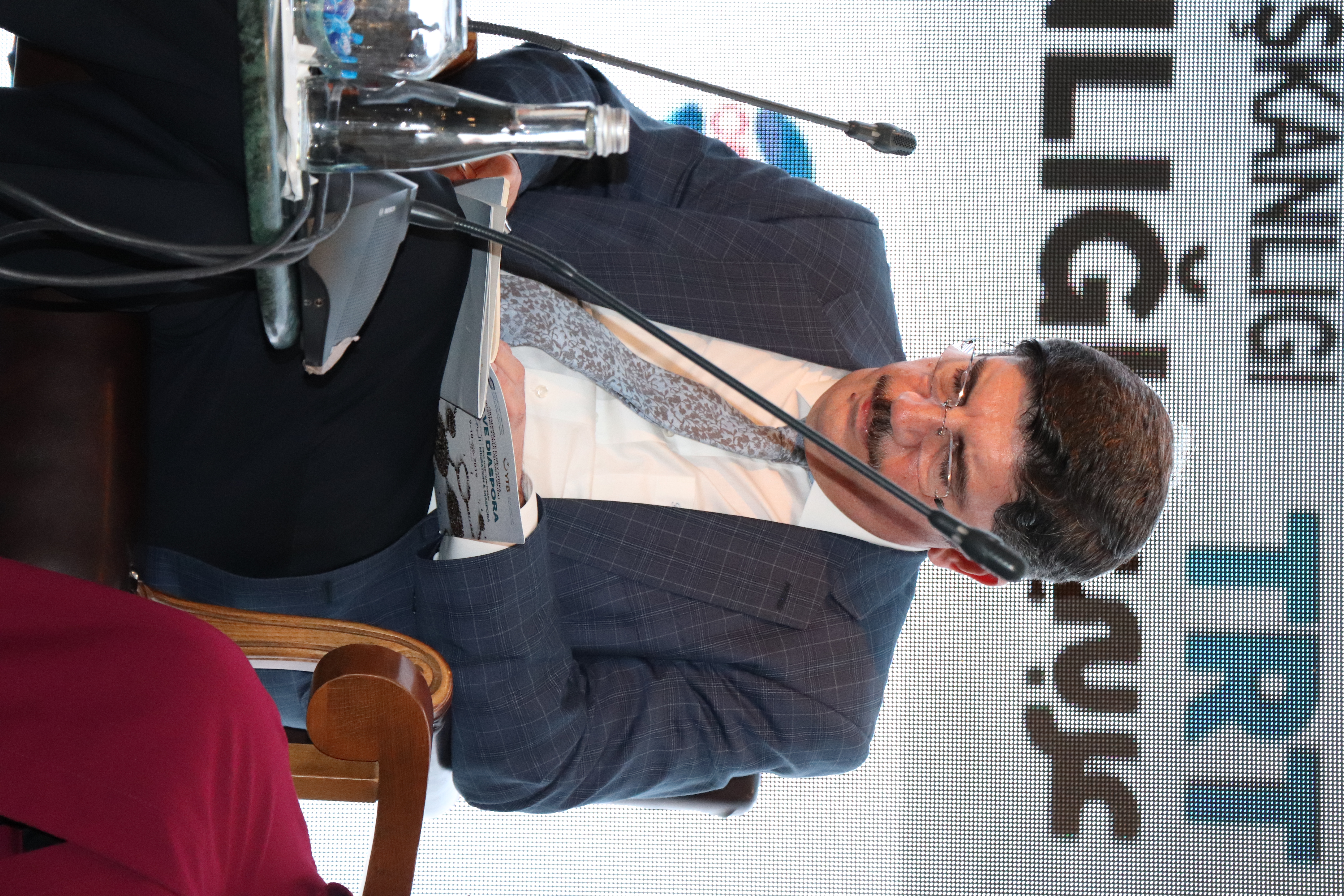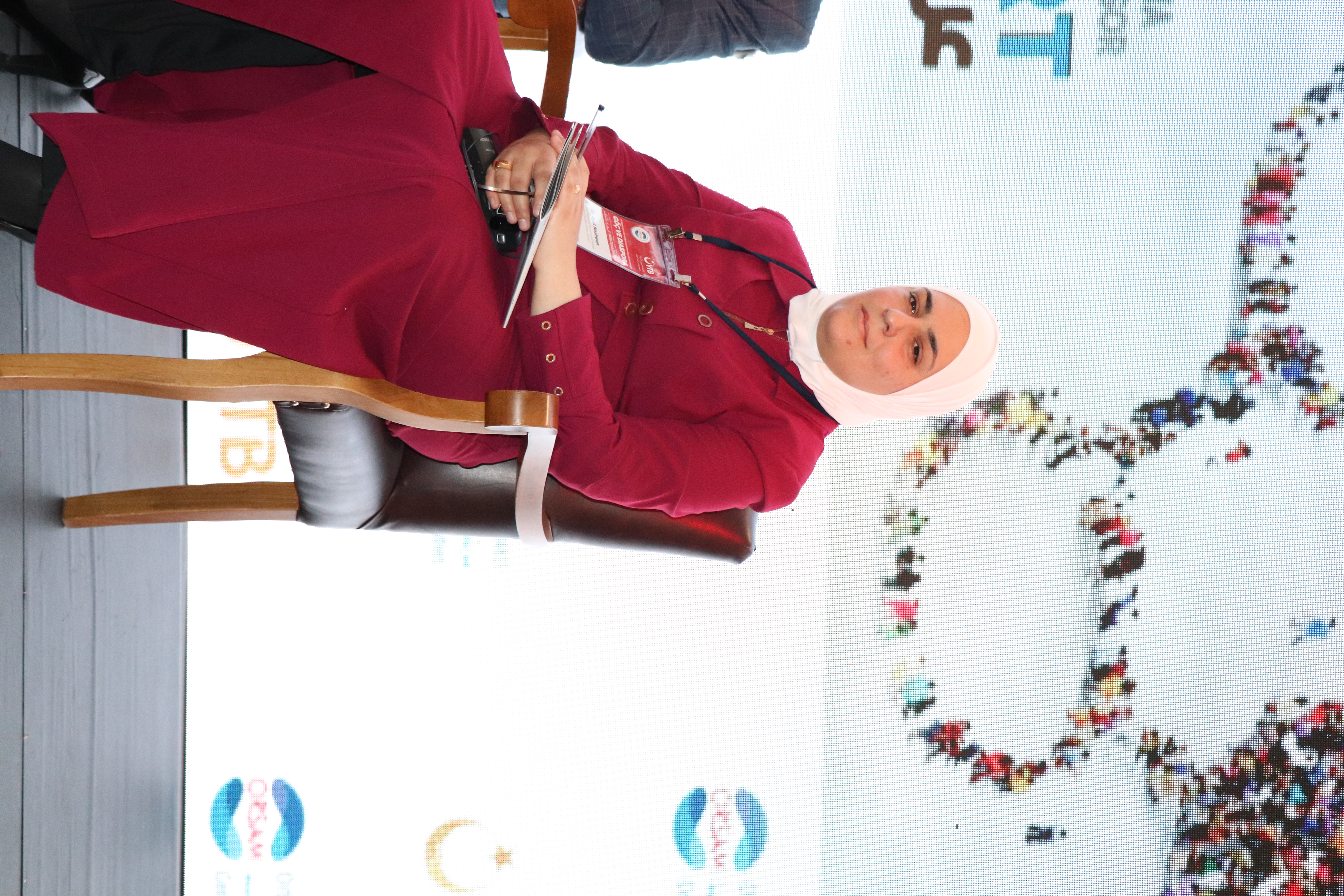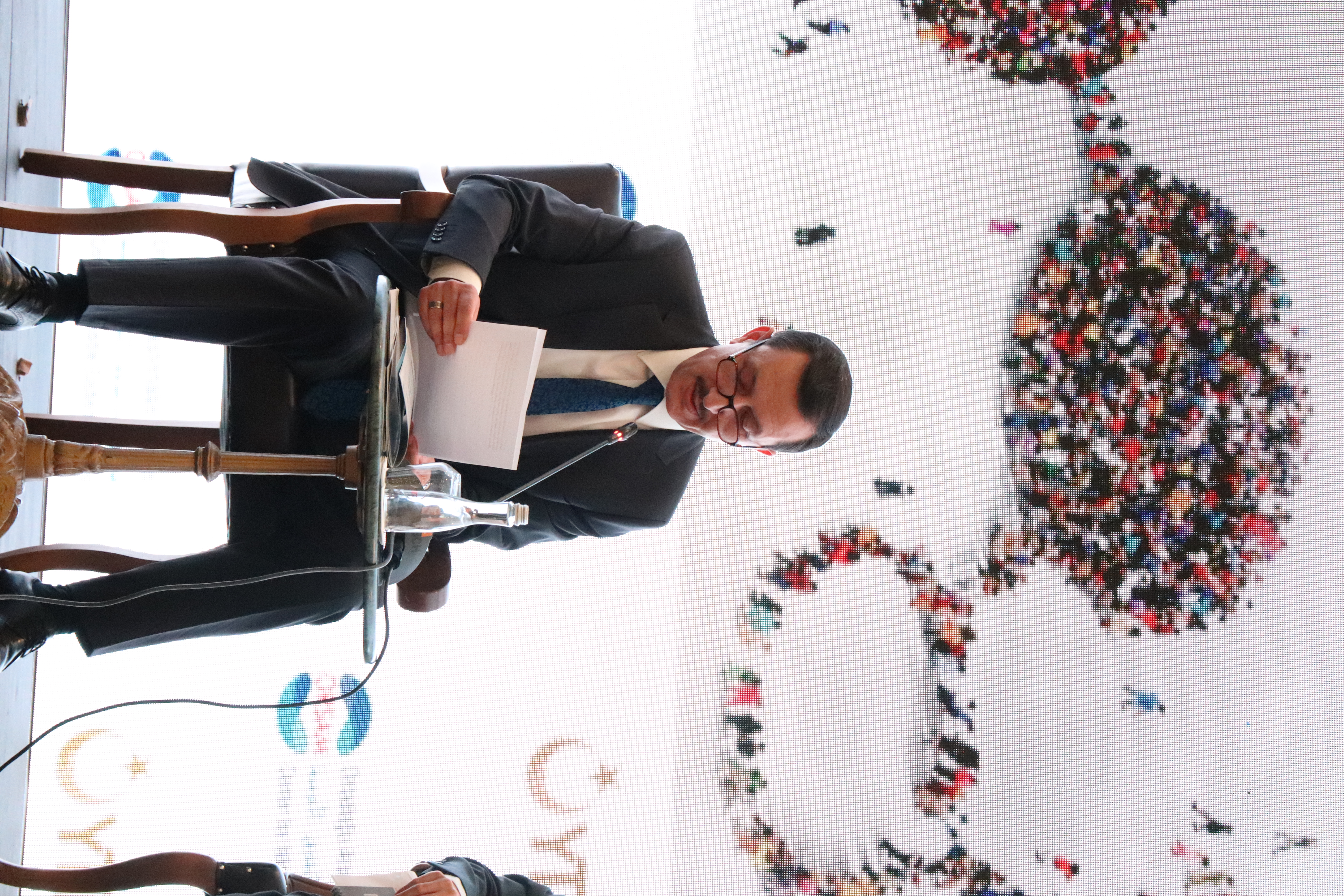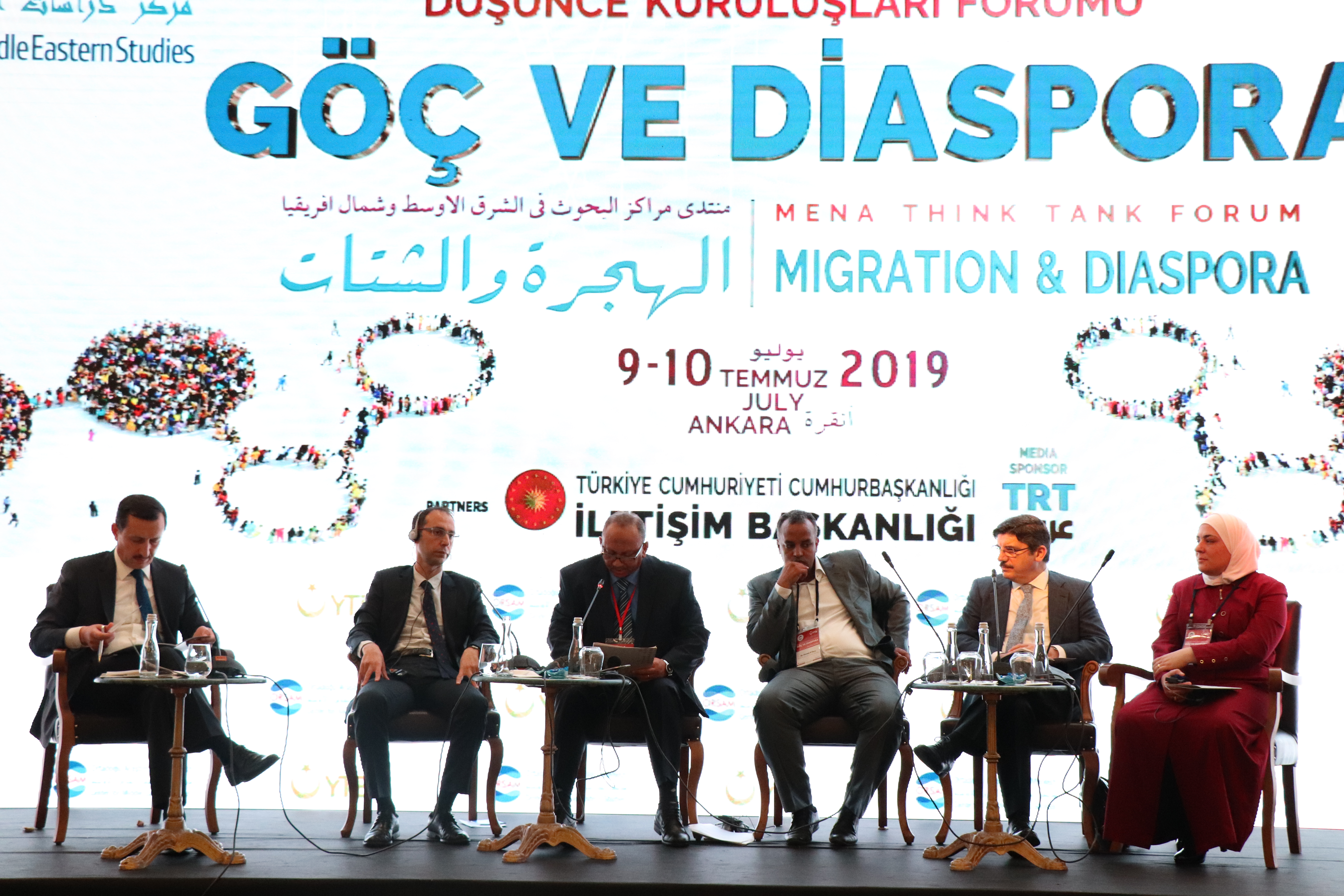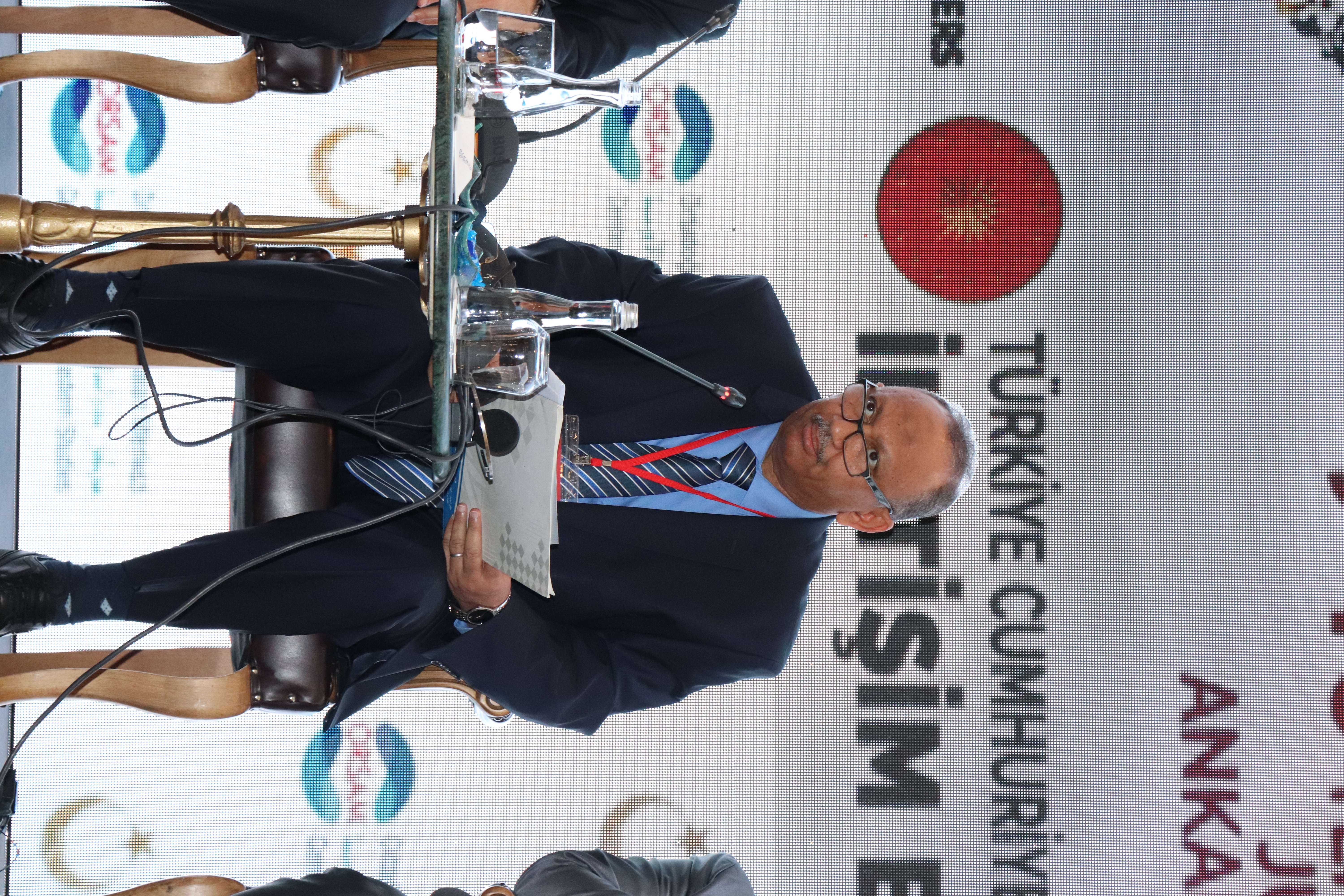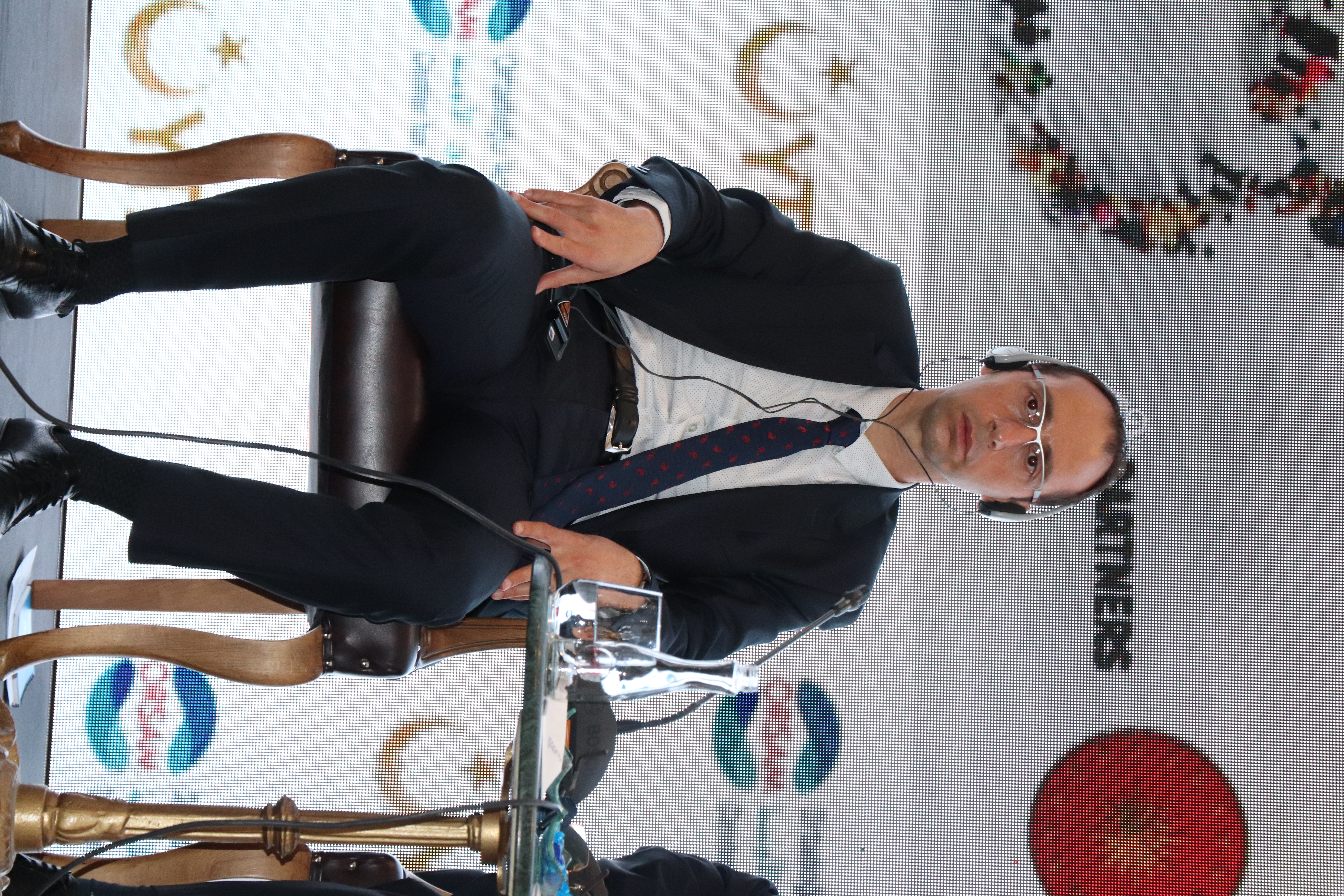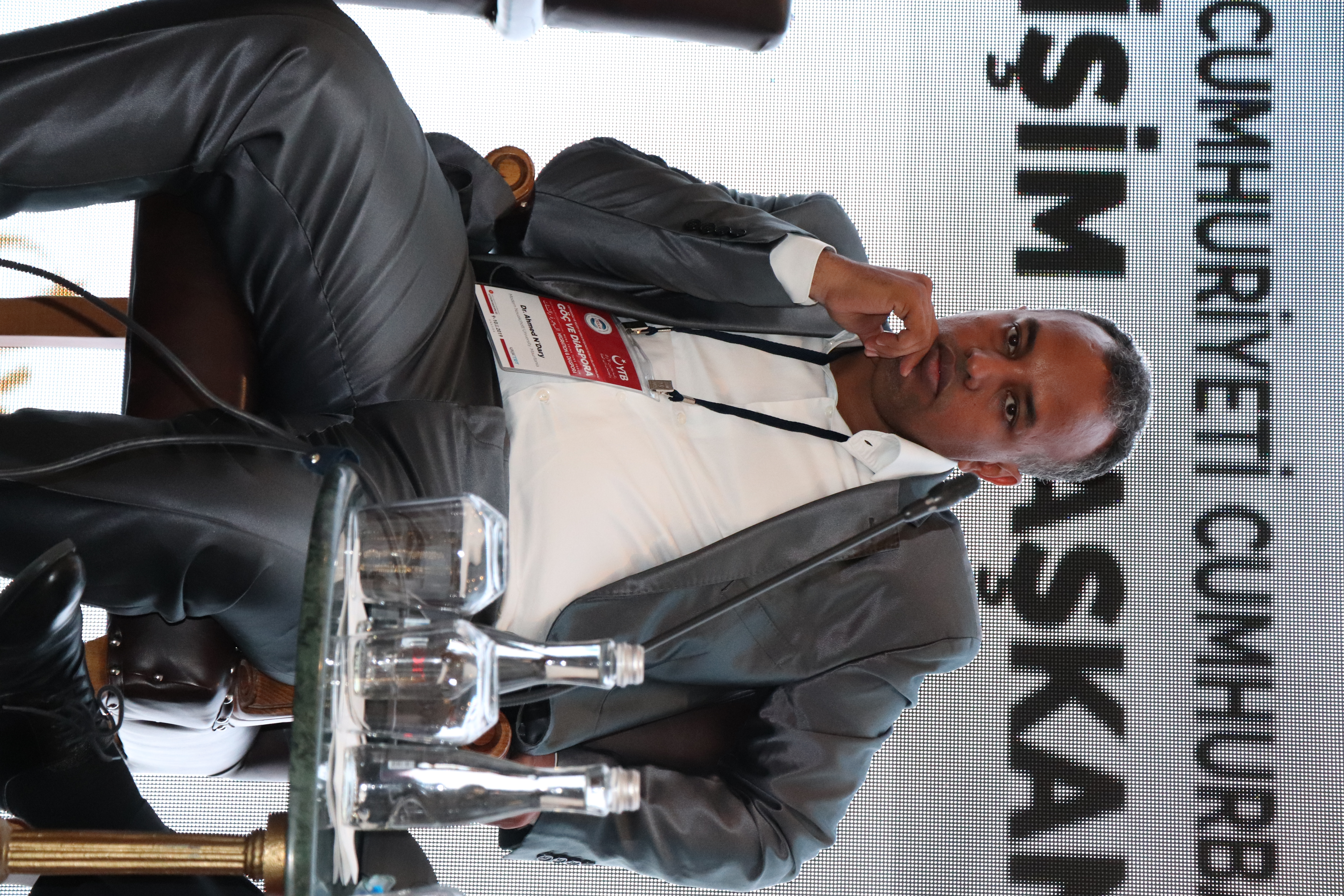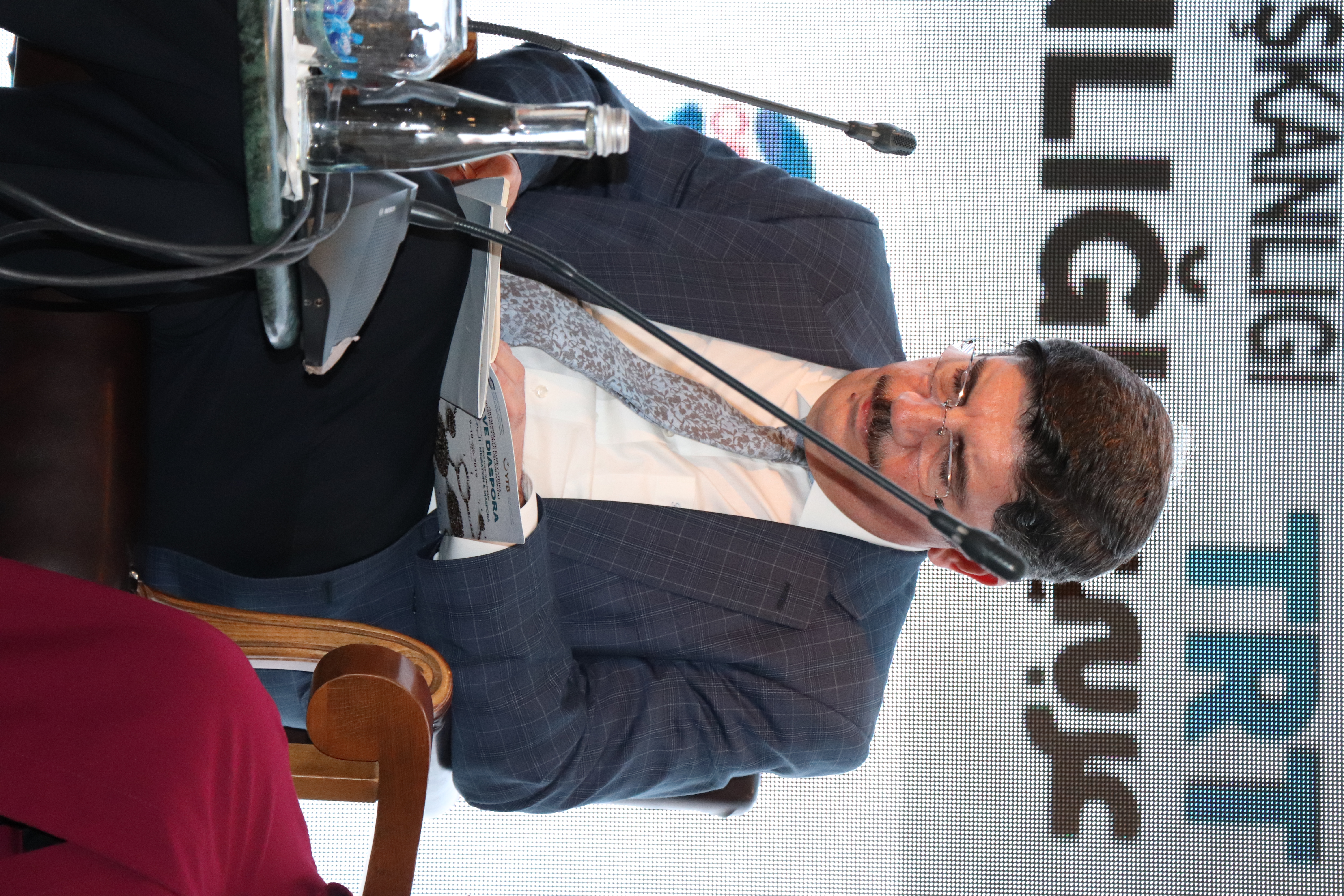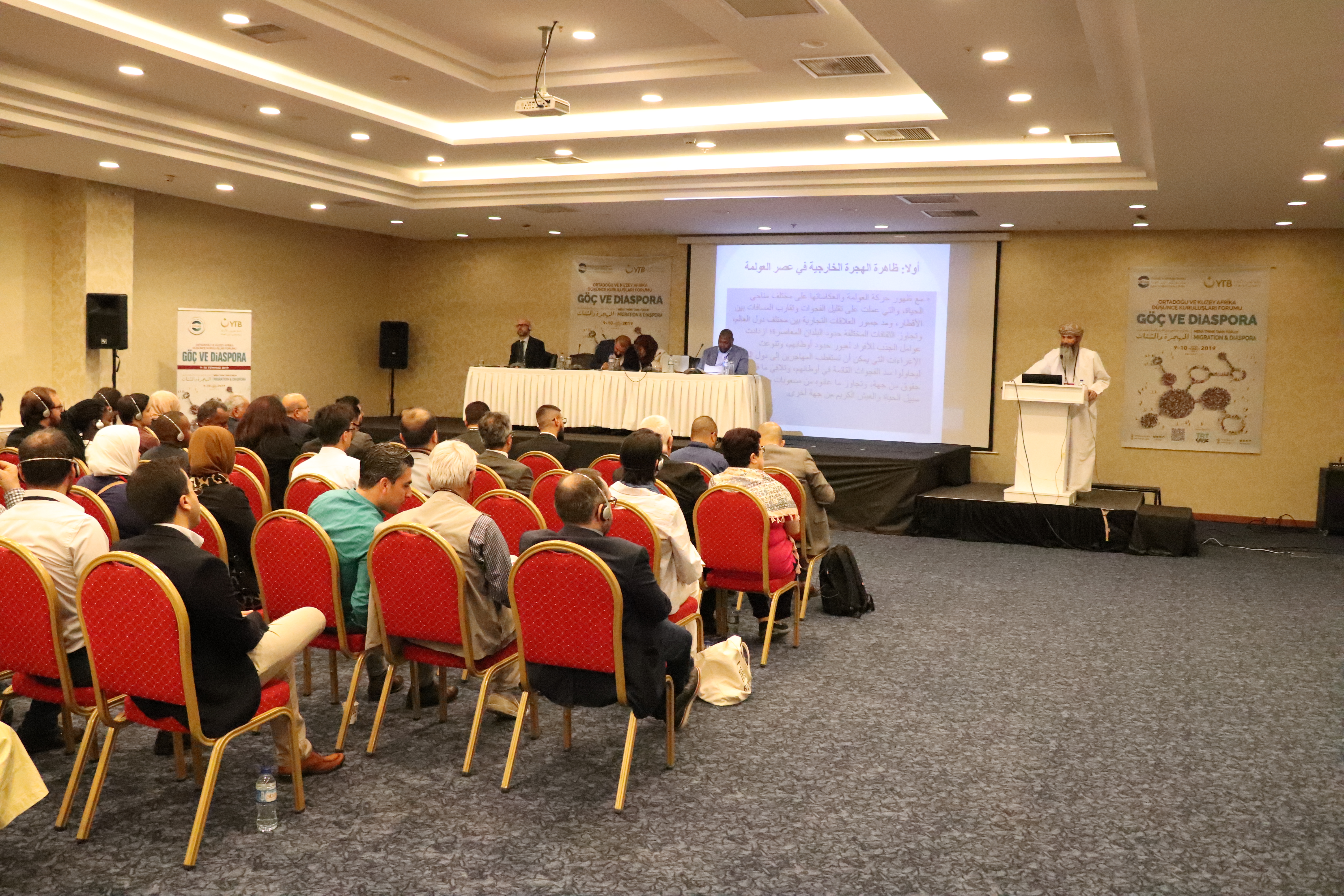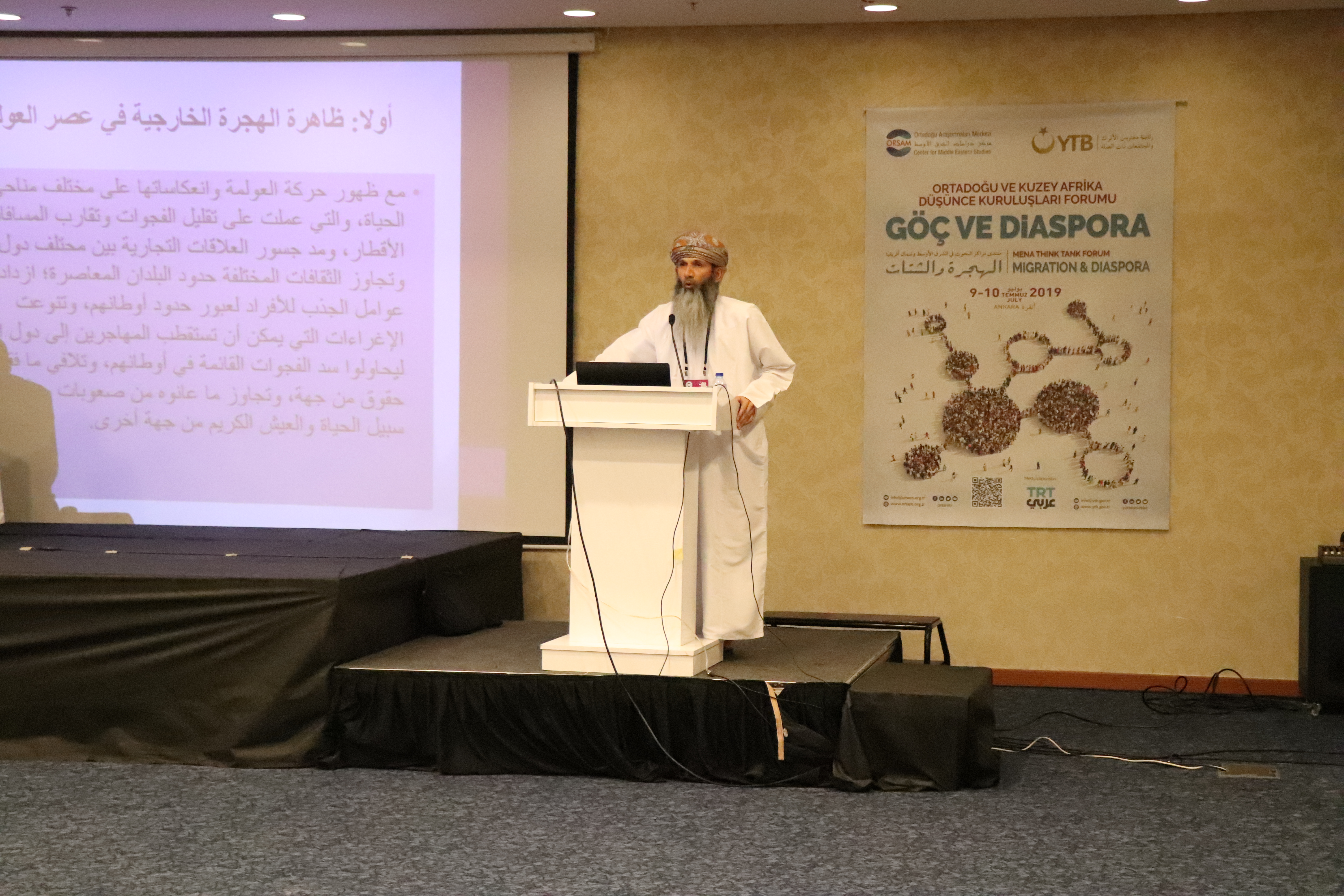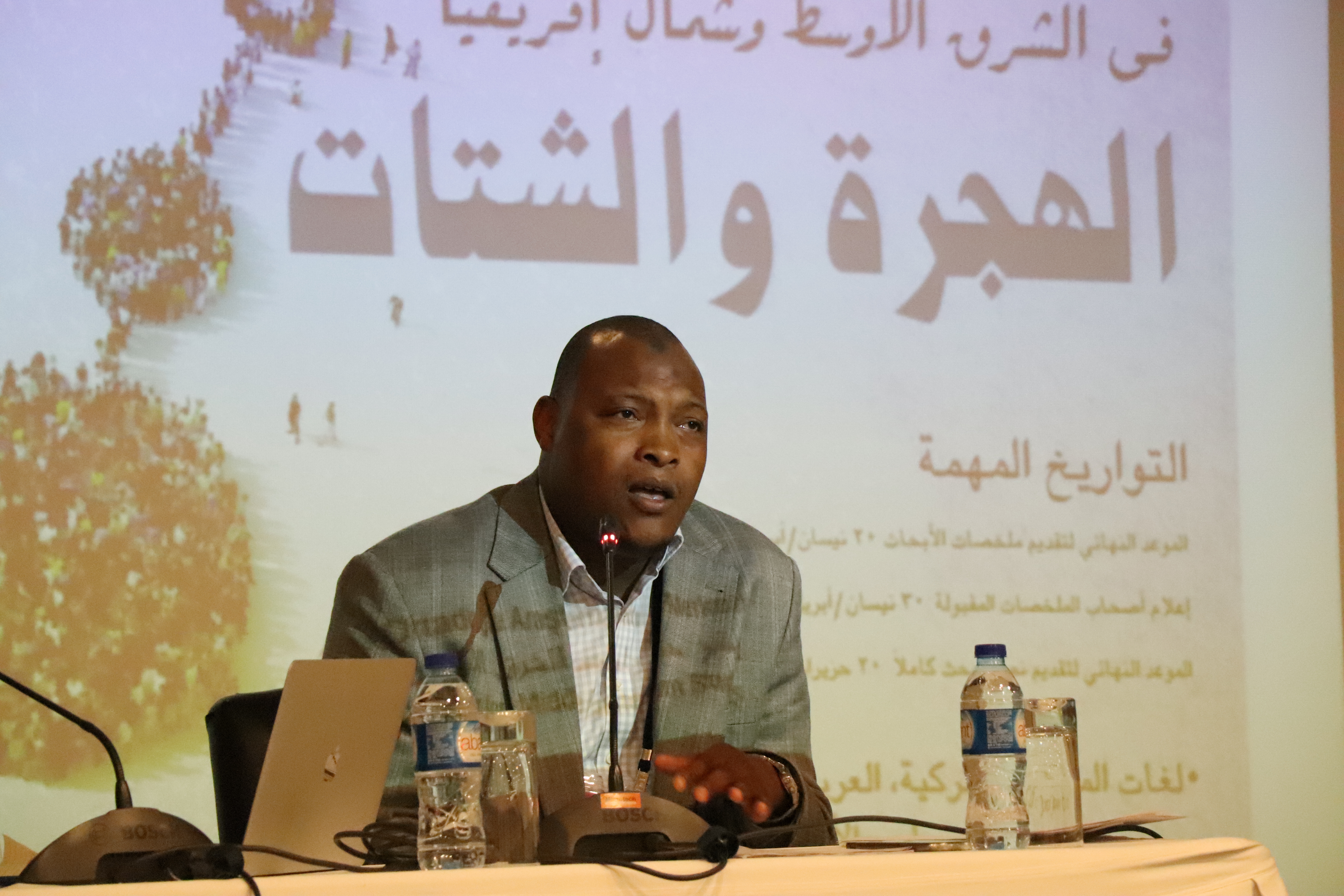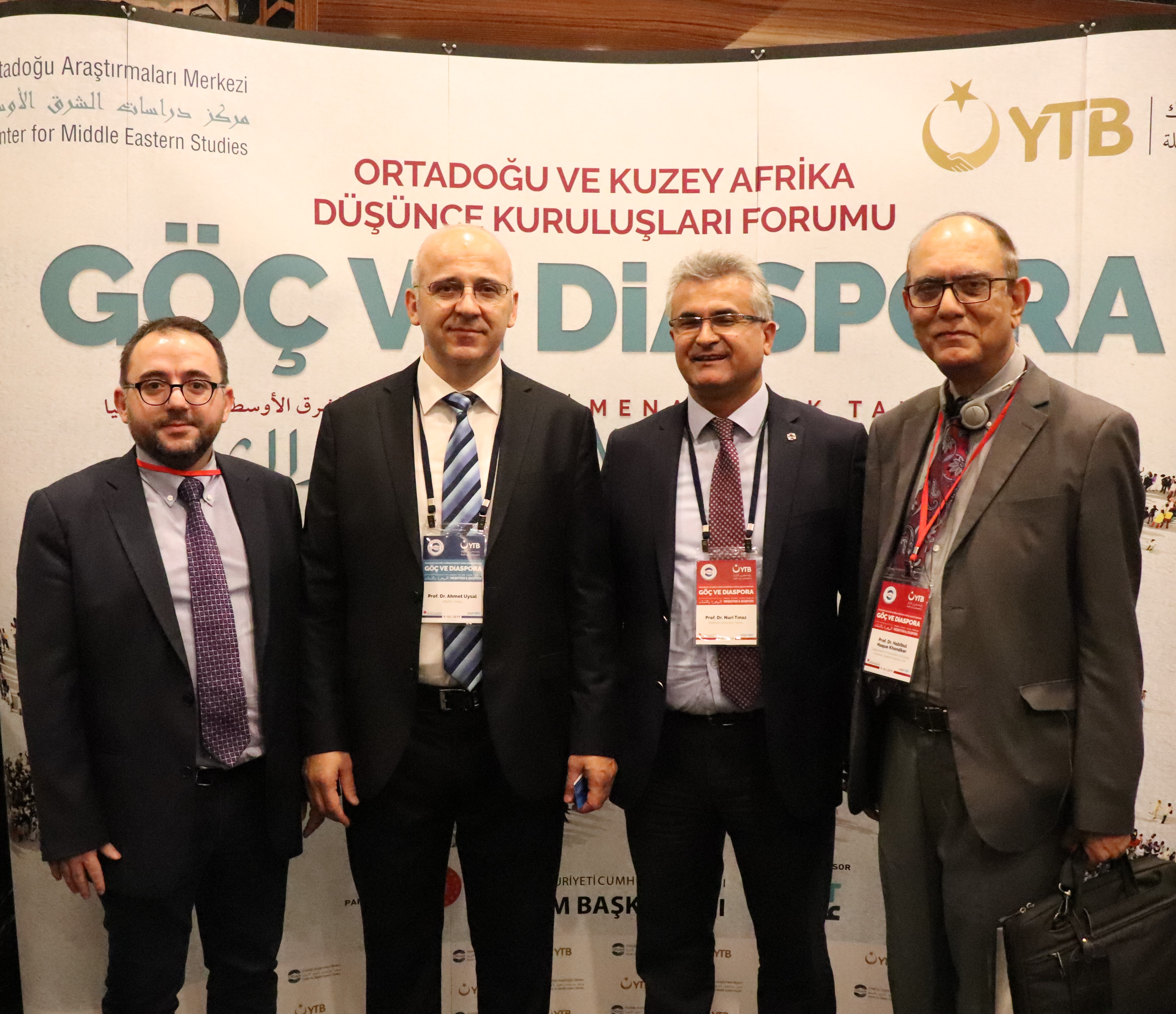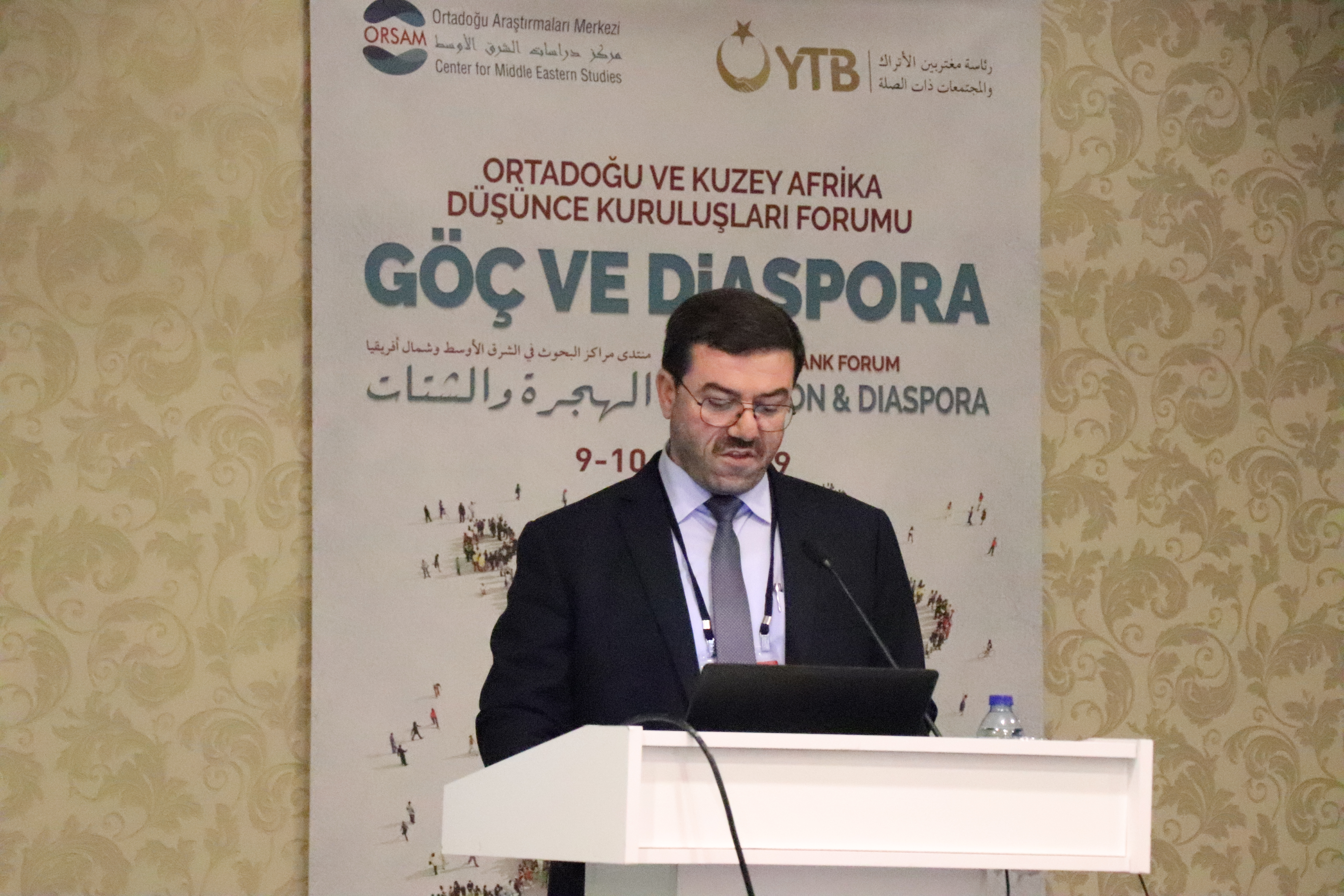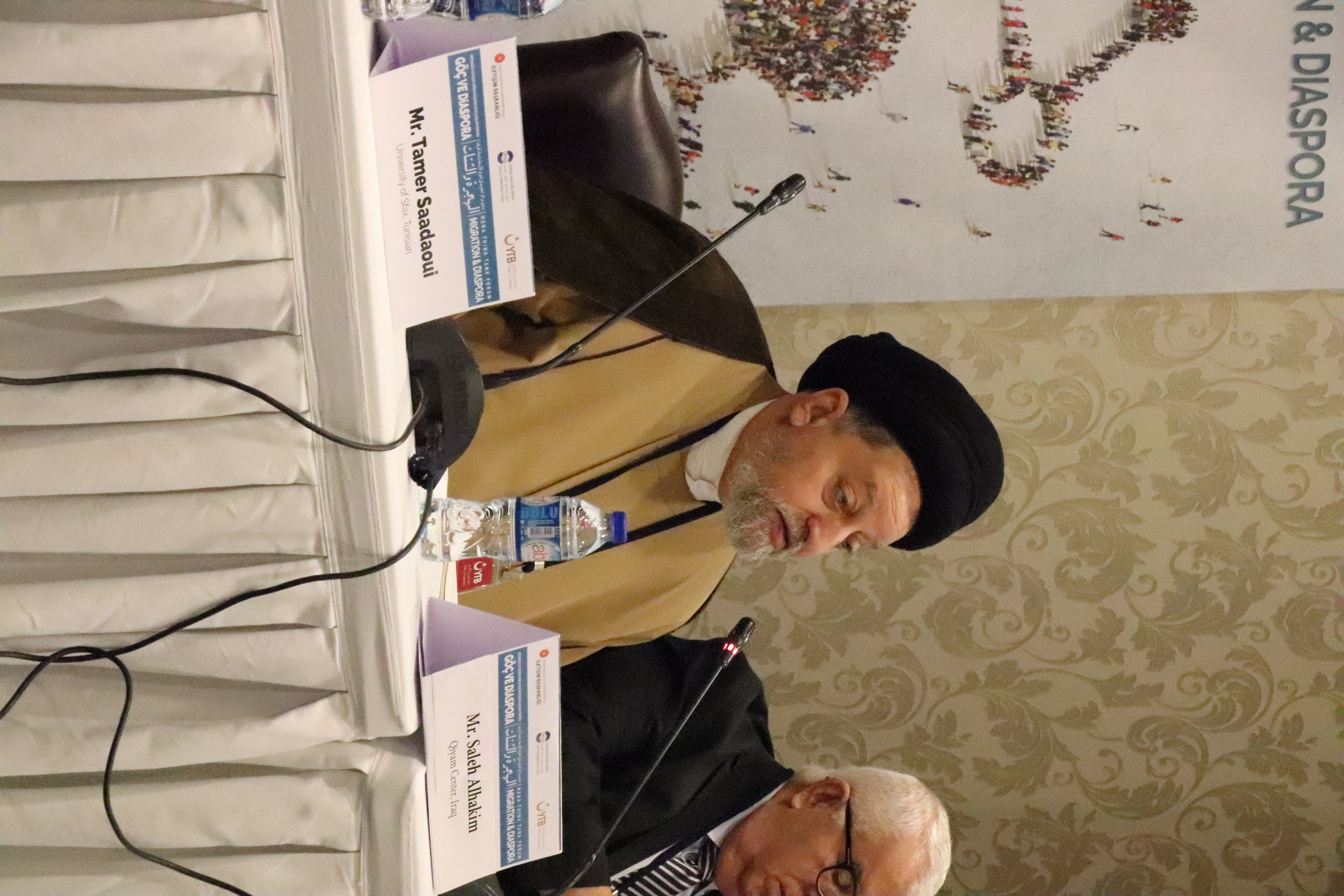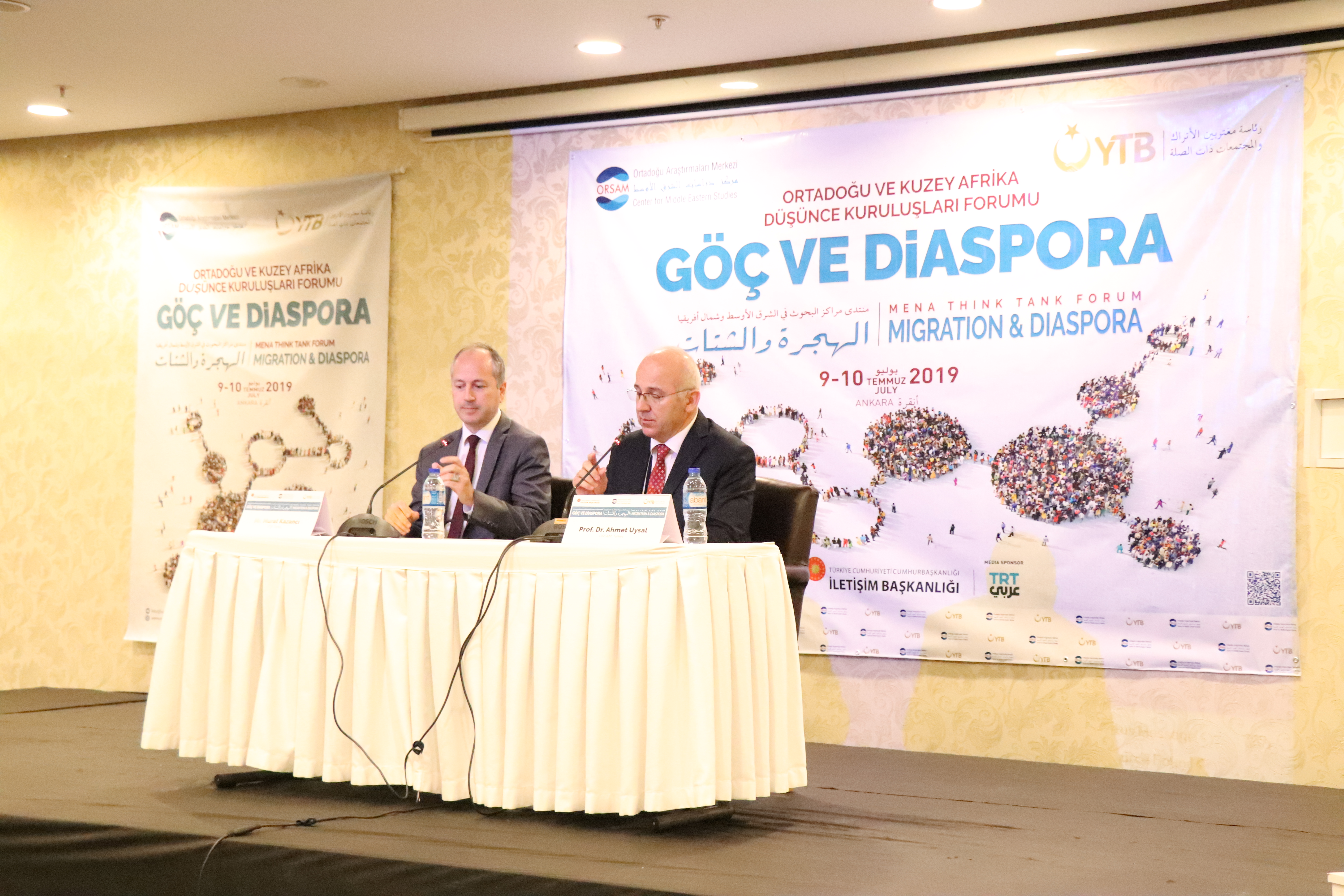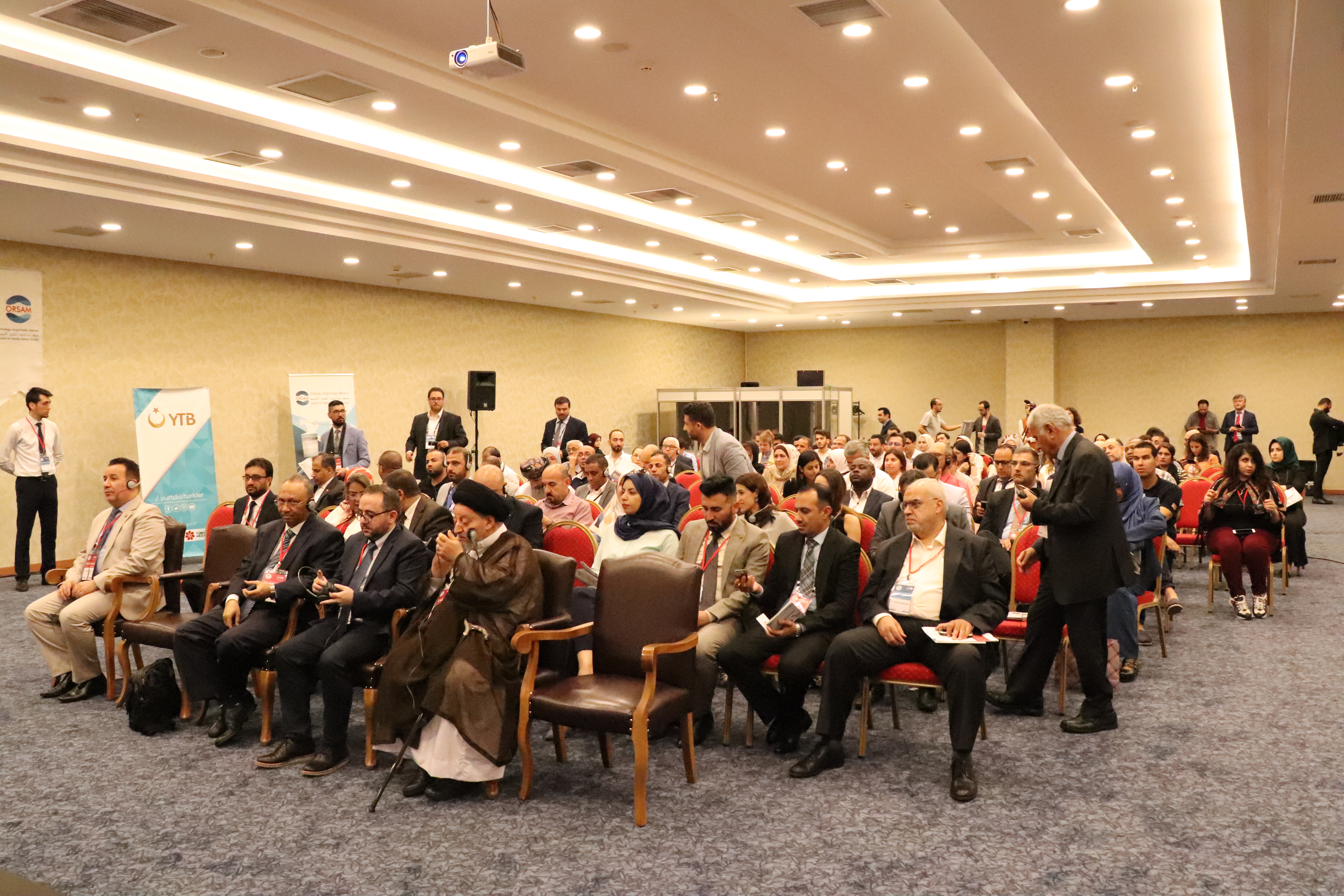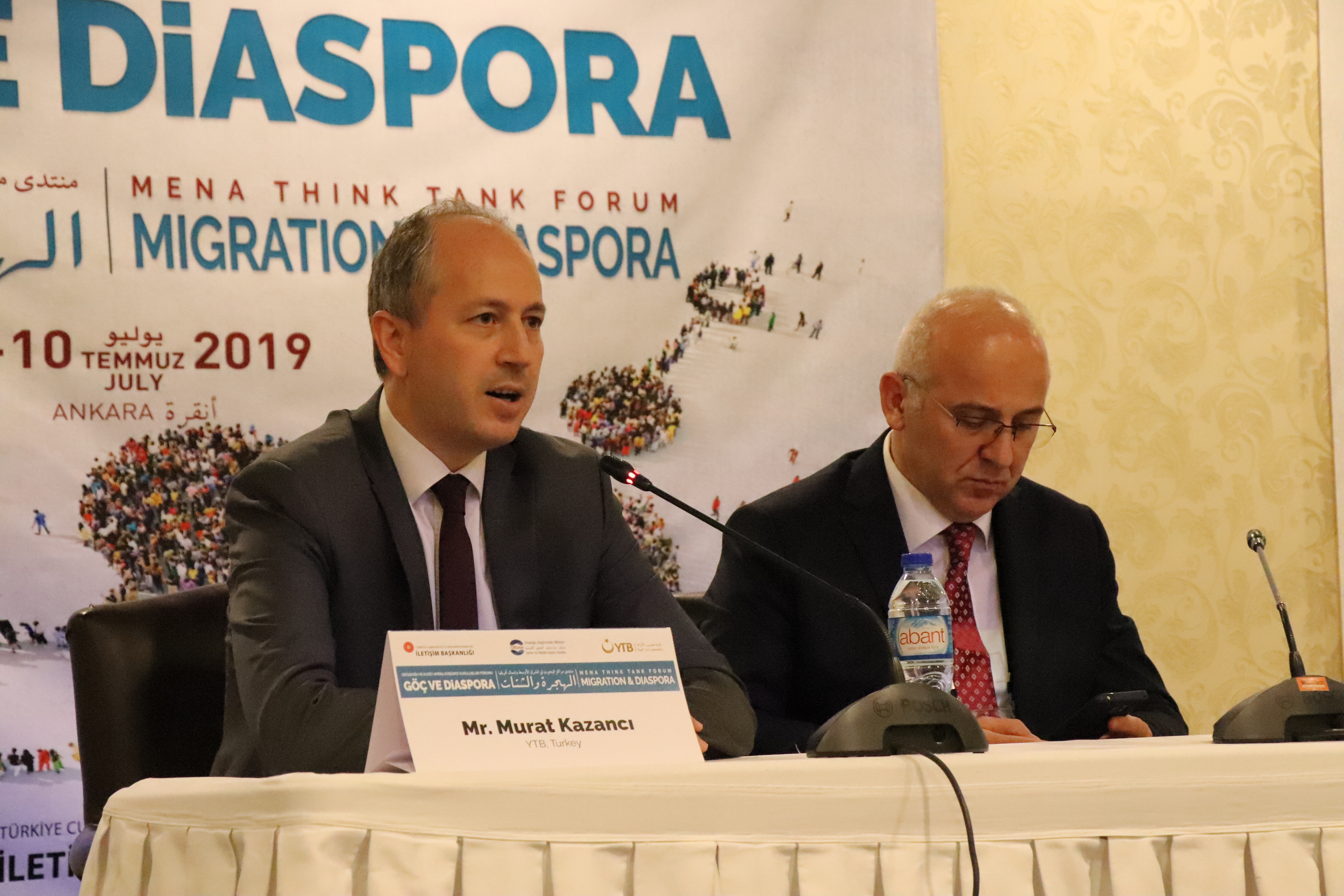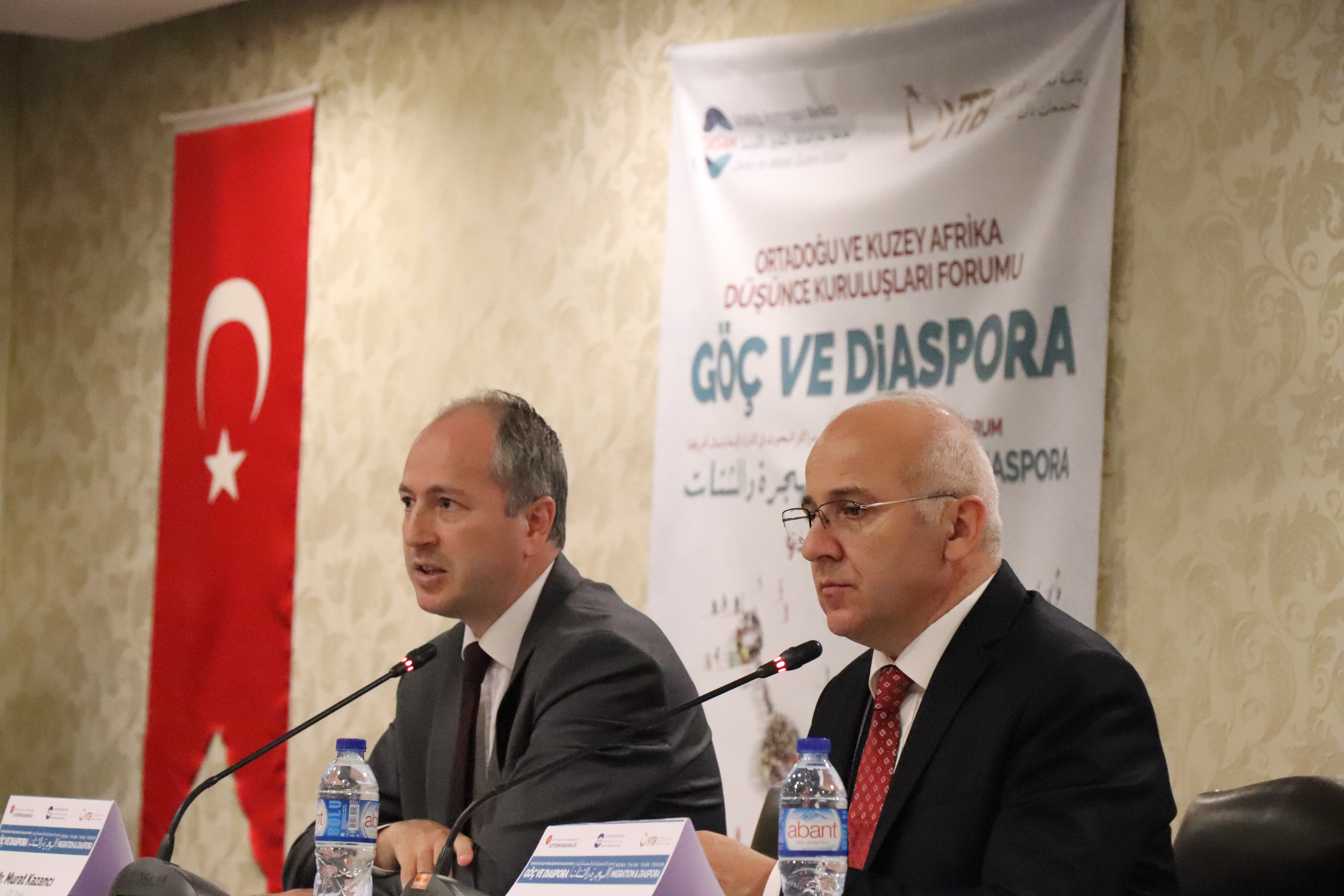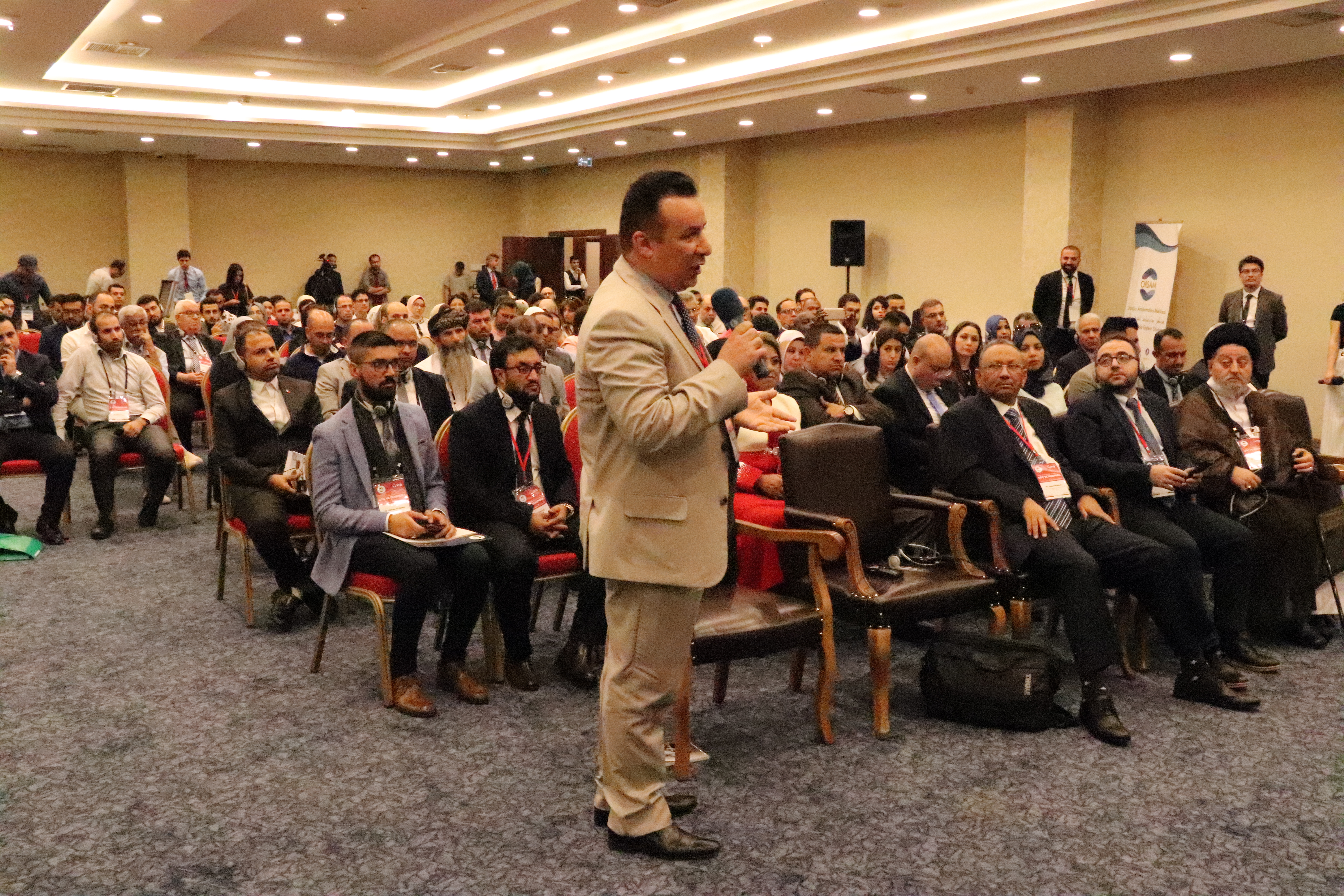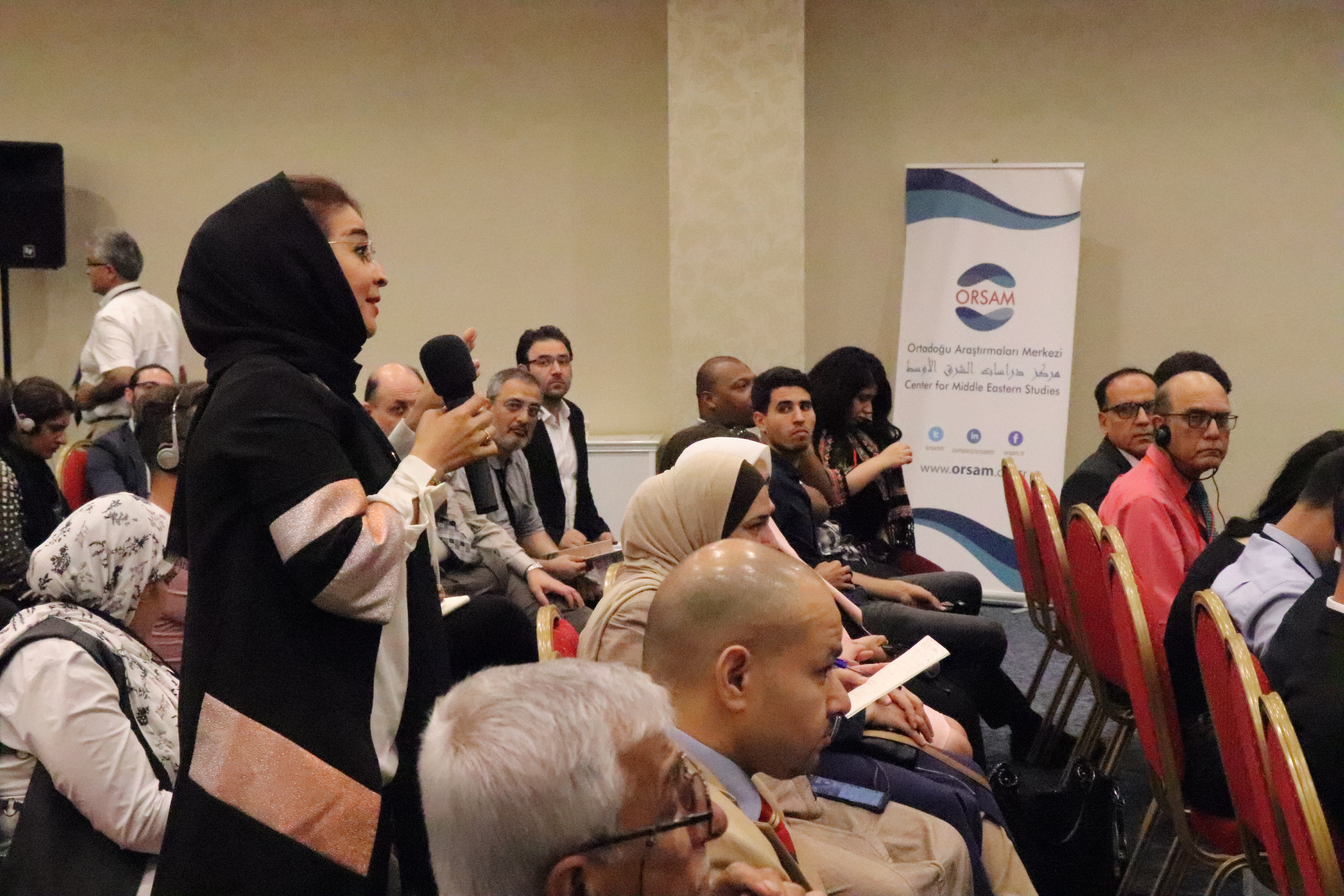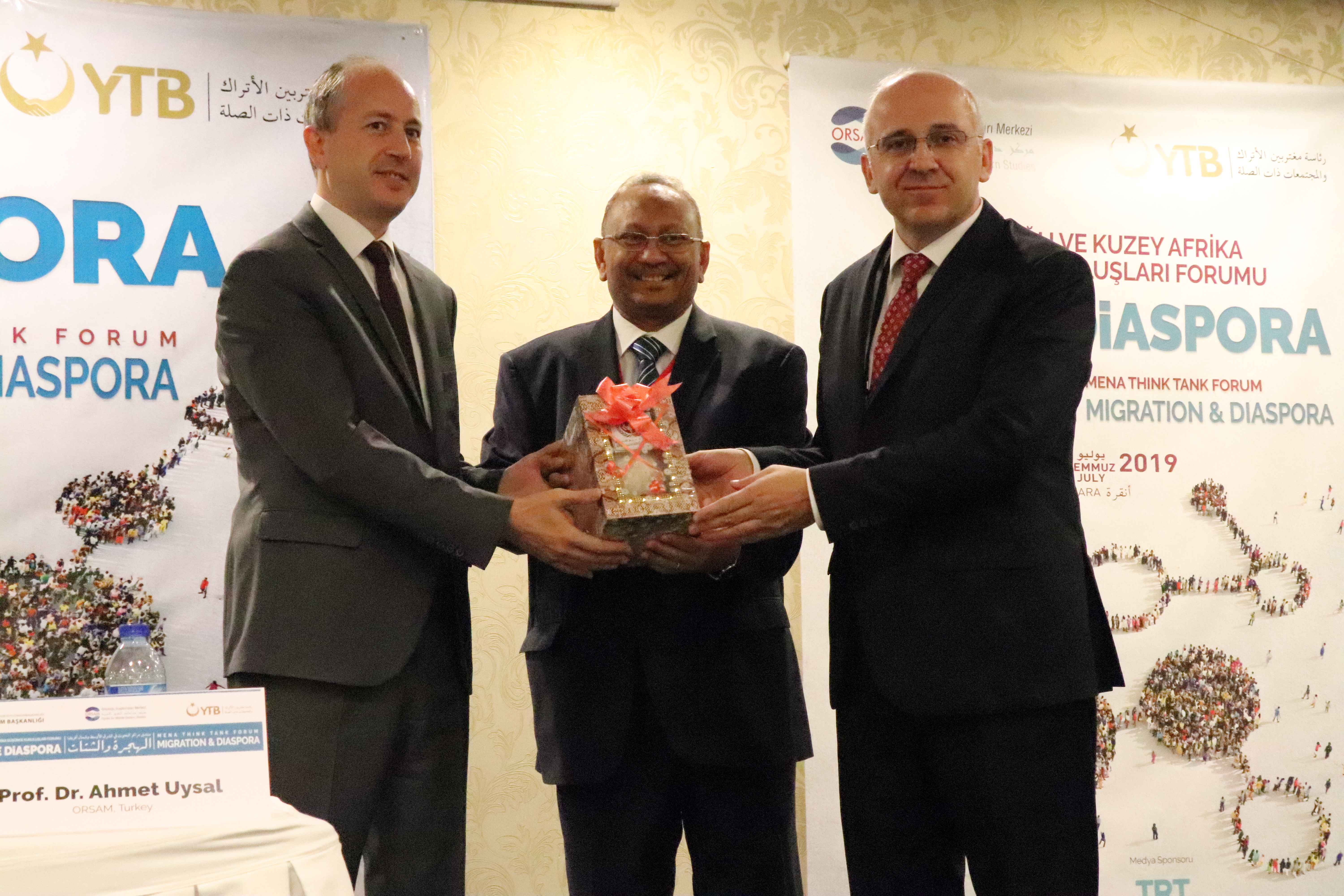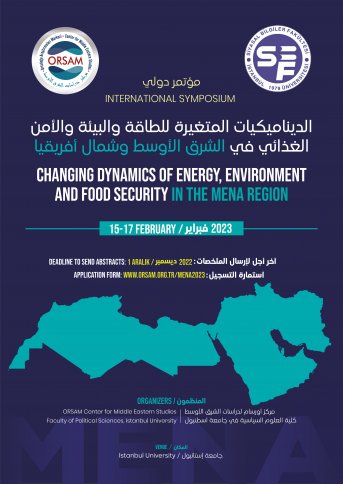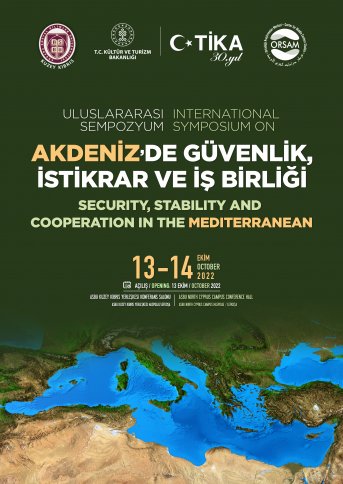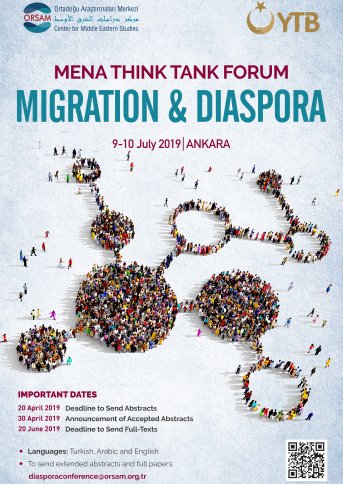
MENA Think Tank Forum: Migration and Diaspora
معلومات عن منتدى الهجرة والشتات - about the MENA Think Tank Forum: Migration and Diaspora
Dear Colleagues,
The Organizing Committee would like to thank all those who have submitted their abstracts to participate in the MENA Think Tank Forum: Migration and Diaspora. Our Scientific Board filtered hundreds of abstracts (713) submitted by scholars from 33 different countries and have reviewed each and every one of them. We are sorry to be obliged to say that only 50 of them have been accepted as notified before. Notification of acceptance of the participation has been sent to the corresponding author’s e-mail address. Therefore, only accepted papers will be informed due to the high number of submissions.
We will be looking forward to see you in the future conferences at ORSAM.
Kind Regards.
In the history of modern humanity, two social phenomena attract the most attention: Nation-state and migration. The issue of nation-state, especially after the collapse of the Empires after the First World War, has taken a dominant place in the political sociology literature. In the meantime, migration has been one of the most fundamental phenomena of humanity to date. However, international migration today occurs among nation-states by leading to a set of complex new situations for immigrants and the nation-states that are both sending and receiving them.
Developments such as poverty, globalization and mass media facilitate migration. Therefore, the pull factors affecting migration in the country of origin (e.g., conflicts, famine, political pressure, natural disasters, etc.) as well as the push factors in the destination country (e.g., economic opportunities, religious and political freedom, arable lands and family ties, etc.) must be re-evaluated. In addition, how the immigrant groups are treated in host countries and their adaptation process must be taken into account. Migration has a wide range of effects in terms of adaptation problems (e.g., language, religious freedom, customs, discrimination, etc.).
The relations of immigrant communities with the motherland have always been a matter of interest and research. In particular, how they are organized and how they maintain their identity in the target countries are among major research topics. This situation is defined by the concept of diaspora, and traditionally this concept has been referred to Jews, Armenians and even earlier Greeks. However, in the modern period, the Turks, Arabs, Kurds and many other Muslim migrant communities are mostly included in the definition of diaspora due to their intense immigration to western societies.
Of course, it is important that diaspora communities maintain their presence while preserving their cultural characteristics and keeping their ties with similar diaspora communities in other nation states. Scholars take the identity problem of the migrants who are perceived as the other in destination countries and as foreigner in the source countries as a highly critical issue. Migration and diaspora issues that are linked to the Middle East and North Africa have become highly controversial for both Western countries and source countries with the rise of radical right-wing attacks against Muslims as well as several terrorist activities related to the migrants.
The Center for Middle Eastern Studies (ORSAM) in cooperation with the Turkish Ministry of Culture’s Presidency for Turks Aboard and Related Communities (YTB will organize the MENA forum for think tanks and academics. This Forum will have an interdisciplinary format and will discuss the issues of migration and diaspora in an academic style. For this purpose, experts and researchers are cordially invited to submit abstracts or papers to be present at the Forum. The event will take place on July 09-10, 2019 at in Ankara, Turkey. The aim of the forum is to bring together many distinguished researchers from all over the world. Participants will find opportunities for presenting new research, exchanging information, and discussing current issues.
Forum Suggested Topics
|
|
Travel and Accommodation
All expenses, including travel, meals, transfer and hotel accommodation, are covered to participate at the Forum will be covered by the organizers (one author/presenter per paper).
Venue: Anadolu Hotels Downtown Ankara
Important dates
| Submission of Abstracts (500 words min.) | 20 April 2019 |
| Notification of Acceptance | 30 April 2019 |
| Full Paper Submission Due (6000 words min) | 20 June 2019 |
| Forum Dates | 09-10.07.2019 |
Terms and Conditions
- Abstracts must be an abbreviated, informative, accurate representation of the final paper.
- The abstracts must be based on an original work, not previously presented or submitted.
- Authors will be notified of acceptance, rejection and/or suggested modifications as soon as the review process has been completed.
- Articles can be written in Turkish, Arabic and English (with a minimum of 500 words).
- Presentations will be in Turkish, Arabic and English.
- Articles must be at scholarly standards and the citations must be given in end-notes.
- Articles should be sent to diasporaconference@orsam.org.tr e-mail address.
Forum Boards
- Honorary president: Abdullah EREN, President of YTB
- President: Ahmet Uysal, President of ORSAM
Organizing Committee
- Dr. Gökhan Bozbaş, Center for Middle Eastern Studies (ORSAM), Turkey
- Dr. Recep Yorulmaz, Center for Middle Eastern Studies (ORSAM), Turkey
- Dr. Samir Alabdullah, Center for Middle Eastern Studies (ORSAM), Turkey
- Sn. Enes Arslan, Center for Middle Eastern Studies (ORSAM), Turkey
Advisery Board
- Prof. Dr. Akif Kireçci, Bilkent University, Turkey
- Prof. Dr. Birol Akgün, Ankara Yıldırım Beyazıt University, Turkey
- Prof. Dr. Buhanettin Duran, İbn Haldun University, Turkey
- Dr. Fatima Rumat, Muhammed V University, Rabat, Marocco
- Prof. Dr. Faouzi Bendridi, University of Souk Ahras, Algeria
- Prof. Dr. Fuat Erdal, İbn Haldun University, Turkey
- Prof. Dr. Haluk Alkan, İstanbul University, Turkey
- Prof. Dr. İsmail Kira, Skikda University, Algeria
- Prof. Dr. Kemal İnat, Sakarya University, Turkey
- Prof. Dr. Mesut Özcan, Diplomasi Akademisi, Turkey
- Prof. Dr. Muhittin Ataman, University of Social Scence, Turkey
- Prof. Dr. Muhsin Kar, Niğde Ömer Halisdemir University, Turkey
- Prof. Dr. Yusuf El-Kasımi, Guelma University, Algeria
- Prof. Dr. Yusuf Tekin, Hacı Bayram University, Turkey
- Prof. Dr. Zekeriya Kurşun, Fatih Sultan Mehmet V. University, Turkey
- Dr. Zouhair Bouamama, Expert on International Relations Cezayir
Scientific Board (Alphabetical Order):
- Dr. Abbas Boughalim, Muhammed I University, Fas
- Dr. Abdelwahhab Khalid, Batna University, Cezayir
- Dr. Abduti Âli, Strategic Research Center, Mauritania
- Dr. Ahmet Gökçen, Muş Alparslan University
- Prof. Dr. Ahmet Öztürk, İstanbul University, Turkey
- Doç. Dr. Ayşe Zişan Furat, İstanbul University, Turkey
- Dr. El-Fakih El-Şeyh Veled Ezzeyn, High council of İslam, Mauritania
- Dr. Göktuğ Sönmez, Center for Middle Eastern Studies (ORSAM), Turkey
- Doç. Dr. Hilmi Özev, Center for Middle Eastern Studies (ORSAM), Turkey
- Prof. Dr. Gülden Ayman, İstanbul University, Turkey
- Doç. Dr. Hasan Duran, İstanbul University, Turkey
- Dr. Houari Mokhtar, Batna University, Algeria
- Dr. Houda Baloul, Center for Economic and Social Research and Studies, Tunus
- Dr. Khaliya Ourida, University of Algeria, Algeria
- Dr. Malika Bin Douda, Tipaza University, Cezayir
- Prof. Dr. Mehmet Şahin, Police Academy, Turkey
- Prof. Dr. Mustafa Kemal Şan, Sakarya University, Turkey
- Prof. Dr. Mustapha Abulgasim, Trablus University, Libya
- Dr. Sumayya Bint El-İmam, Novakşod University, Mauritania
- Prof. Dr. Yaşar Onay, İstanbul University, Turkey
- Dr. Hani Awad, Doha Institute for Graduate Studies, Qatar
- Dr. Mohamed Wafik Zainelabdin, Institute of Social Science, Kuwait
- Dr. Branislav Radeljic, University of East London, England
- Prof. Dr. Jawad Syed, Lahore University of Management Sciences, Pakistan
- Prof. Dr. Seif el-islam Chouia, Badji Mokhtar Üniversitesi, Algeria
- Associ. Prof.khadija Hassan Jasim, Ministry of education , Iraq
- Associ. Prof. Wijdan Eltijani Elssadig Abbas, Naif university for security sciences
- sociology department, KSA
- Dr. Samir Trabelsi, Wrock University, Canada
Contact Information:
- Email: diasporaconference@orsam.org.tr
- Phone: +90553 253 96 69

